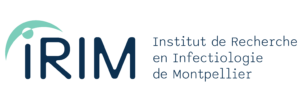Séminaires à l’IRIM
Les séminaires à l’IRIM ont lieu tous les vendredis à 11h00 dans la salle « Marcel Dorée ». Il y a une alternance entre séminaires internes faits par les équipes et les séminaires externes sur invitation (voir liste ci-dessous).
Début 2019, l’IRIM a également lancé une nouvelle série séminaire ‘career outside academia seminars’ visant à présenter aux doctorants et postdoctorants du campus les parcours professionnels possibles en dehors de la recherche académique, après un doctorat et post-doctorat. Ces séminaires ont lieu dans un contexte informal et détendu, laissant libre cours aux questions et discussions. Plus d’information ici.
Séminaires à venir:
- Dr. Guillaume TRESSET (Laboratoire de Physique des Solides, Univ. Paris-Saclay). « How to assemble a simple icosahedral virus » -Vendredi 13 Février 2026 à 11h (Salle Marcel Dorée).
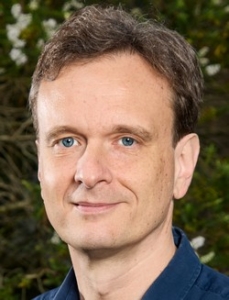
Viruses are fascinating pathogens that combine structural simplicity with complex functions. The simplest viruses are made up of an icosahedral, protein capsid protecting the genome in the form of ssRNA. During replication in host cell, the hundreds of freshly synthesized viral components self-assemble with a pinpoint accuracy and high fidelity. Cutting-edge techniques have recently enabled to get quantitative insights into the self-assembly mechanisms with unprecedented space and time resolution. I will show first how time-resolved X-ray scattering with synchrotron source has allowed us to identify unexpected intermediate species along the capsid assembly and disassembly kinetic pathways. I will then describe the disorder-to-order transition that accompanies nucleocapsid formation and the role played by the RNA secondary structure. Total internal reflection fluorescence microscopy have given further insights into the (un)binding dynamics of capsid proteins on RNA in real time, at single molecule level. To conclude, I will introduce future directions that will permit to better elucidate viral assembly in the active and crowded cytoplasmic milieu.
Séminaires passés:
- Dr. Pierre-Olivier Vidalain (CIRI – Lyon) « Giving Viruses a Hard Time: Antiviral Effects of Metabolic Modulators » – Vendredi 23 Janvier 2026 à 11h (Salle Marcel Dorée).
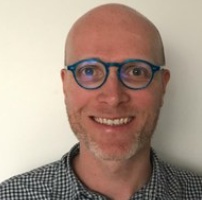
It is now well accepted that viruses do not passively exploit cellular resources, but have evolved specific strategies to actively reprogram host metabolic pathways to meet the energy and metabolite demands of replication. Research programs within the « Viral Infection, Metabolism and Immunity » (VIRIMI) team at the CIRI in Lyon focus on targeting cellular metabolism to prevent viruses from establishing a microenvironment favorable to replication, representing a promising host-directed antiviral (HDA) strategy. By acting on host functions that support viral replication rather than on viral components themselves, this approach has the potential to inhibit multiple viruses sharing similar metabolic requirements. In this seminar, I will present examples of metabolic modulators with antiviral activity, drawing on both the literature and our recent work on the NAD(H) biosynthesis pathway and the hypoxia response pathway to inhibit replication of Flaviviridae and Paramyxoviridae, respectively. These advances highlight the potential for developing innovative, broad-spectrum antiviral therapies that act on host metabolism rather than directly targeting viral factors.
- Dr. Hem Chandra Jha (Institute of Technology Indore, India) « Infection and Co-infection Models of Pathogens in Chronic Diseases » Vendredi 21 novembre 2025 à 11h (Salle Marcel Dorée).
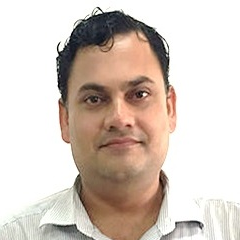
Dr. Jha’s group at IIT Indore employs an interdisciplinary approach in infectious biology and have highlighted the intricate role of pathogenic agents such as Helicobacter pylori and Epstein-Barr virus (EBV) in development and progression of various disorders. Such pathogens have been implicated not only in gastric cancer but also neurological disorders like multiple sclerosis and Alzheimer’s disease, as well as exacerbate cerebral malaria once co-infected with Plasmodium species. We have increasingly put forth the disruption of gut-brain axis due to alone or co-infection of these pathogens that plausibly contribute to neuroinflammation and neural complications. We identified the role of STAT3-induced neuroinflammation and AD upon the gut dysbiosis mediated by antimicrobial resistant H. pylori. Beyond this, the dual infection of these pathogens plays a crucial role in altering Gankyrin and Aurora kinase A -mediated oncogenesis in gastric cancer.
In parallel research on SARS-CoV-2, Dr. Jha’s group has utilized machine learning to assess ground-glass opacities in lung imaging of infected patients and correlated these findings with inflammatory and biochemical markers across various variants. Investigating the pathogenesis has also resulted in identifying potential phytochemical-based inhibitors against viral proteins to shed light on host-pathogen complications and treatment. Additionally, severity attributed to co-infection of SARS-CoV-2 and H. pylori have also been observed to show mitochondrial alterations. The malignant transformation due to pathogens is not just limited to gut but also leads to changes in molecular mechanisms attributing to oral cancer by transforming oral submucous fibrosis to oral squamous cell carcinoma. The fibroblast senescence and biomarker identification are carried out in patients with such diseases aimed at improving early diagnosis and therapeutic strategies. To achieve the mechanisms of host-pathogen interplay, the lab utilized multiple models including in vitro and in vivo experimentations that are further subjected to specialized techniques such as lipidomics, metabolomics, and Raman microspectroscopy to reveal detailed mechanisms. Collectively, these efforts aim to bridge infection biology and bioengineering for translational insights into infection-driven diseases.
- Dr. Virginie Stévenin (IPBS – Toulouse) « Nest building: Ubiquitination-dependent manipulation of host recycling pathways by the intracellular bacteria Salmonella » Vendredi 3 Octobre 2025 à 11h (Salle Marcel Dorée).
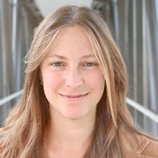 Dr. Virginie Stévenin is an early-career researcher in host-pathogen interactions. Her approaches apply advanced microscopy and molecular tools to study how intracellular bacteria, such as Salmonella, manipulate host cell signaling and dynamics to survive and replicate. During her PhD at the Institut Pasteur (Paris) under the supervision of Dr. Jost Enninga, she developed a high-throughput imaging and automated analysis pipeline, integrating machine learning to identify cellular features preferentially targeted by Salmonella. Next, she identified a novel function of macropinosomes formed at infection sites in stabilizing of the Salmonella-Containing Vacuole. Through magnetic isolation and proteomic analysis of these infection-associated compartments, she deciphered their role in the early reshaping of Salmonella-Containing Vacuoles.
Dr. Virginie Stévenin is an early-career researcher in host-pathogen interactions. Her approaches apply advanced microscopy and molecular tools to study how intracellular bacteria, such as Salmonella, manipulate host cell signaling and dynamics to survive and replicate. During her PhD at the Institut Pasteur (Paris) under the supervision of Dr. Jost Enninga, she developed a high-throughput imaging and automated analysis pipeline, integrating machine learning to identify cellular features preferentially targeted by Salmonella. Next, she identified a novel function of macropinosomes formed at infection sites in stabilizing of the Salmonella-Containing Vacuole. Through magnetic isolation and proteomic analysis of these infection-associated compartments, she deciphered their role in the early reshaping of Salmonella-Containing Vacuoles.
In 2018, Dr. Stévenin joined the lab of Prof. Jacques Neefjes at the Leiden University Medical Center (the Netherlands), where she investigated the link between Salmonella infection and cancer. Her work demonstrated that bacterial replication induces metabolic reprogramming via mTOR hyperactivation, contributing to cellular transformation. In parallel, she initiated an independent research line within the Neefjes lab, investigating how Salmonella exploits the host ubiquitination machinery to rewire intracellular trafficking and establish a permissive vacuolar niche. In 2023, she was awarded a Veni grant from the NWO Talent Programme to further develop her independent research program. In September 2025, she transferred her research to IPBS-Toulouse, joining the group of Dr. Étienne Meunier to establish and expand her research line on host–pathogen interactions.
- Dr. Gerald Larrouy-Maumus (Imperial college – Londres) « Revising the nutrients of Mycobacterium tuberculosis » JEUDI 25 septembre 2025 à 11h (Salle Marcel Dorée).
 Biosketch: Dr Gerald Larrouy-Maumus is currently a Reader in Molecular Microbiology from the Department of Life Sciences, Faculty of Natural Sciences at the Centre for Bacterial Resistance Biology, Imperial College London. He did his undergraduate and master studies at Université Paul Sabatier, then from 2005-2009 his PhD at IPBS on the identification of the glycosyltransferases potentially involved in the biosynthesis of (lipo) polysaccharides found in the mycobacterial cell envelope under the supervision of Dr Germain Puzo and Dr Jerome Nigou. From 2009-2011, Dr Larrouy-Maumus did his first post-doctoral training under the supervision of Dr Martine Gilleron still at the IPBS. Then, from 2011 until 2014, Dr Larrouy-Maumus did his second post-doctoral training, at MRC-NIMR London (UK), under the supervision of Dr Luiz de Carvalho, where he focused on the “functional annotation” of orphan enzymes in Mycobacterium tuberculosis using metabolomics. In 2014, he secured a lectureship position at Imperial College London, where he established his laboratory. He has been promoted as senior lecturer in 2019 and reader in 2023. Over the last decade he has developed cutting edge expertise in biochemistry, lipidomics and metabolomics of bacterial pathogens.
Biosketch: Dr Gerald Larrouy-Maumus is currently a Reader in Molecular Microbiology from the Department of Life Sciences, Faculty of Natural Sciences at the Centre for Bacterial Resistance Biology, Imperial College London. He did his undergraduate and master studies at Université Paul Sabatier, then from 2005-2009 his PhD at IPBS on the identification of the glycosyltransferases potentially involved in the biosynthesis of (lipo) polysaccharides found in the mycobacterial cell envelope under the supervision of Dr Germain Puzo and Dr Jerome Nigou. From 2009-2011, Dr Larrouy-Maumus did his first post-doctoral training under the supervision of Dr Martine Gilleron still at the IPBS. Then, from 2011 until 2014, Dr Larrouy-Maumus did his second post-doctoral training, at MRC-NIMR London (UK), under the supervision of Dr Luiz de Carvalho, where he focused on the “functional annotation” of orphan enzymes in Mycobacterium tuberculosis using metabolomics. In 2014, he secured a lectureship position at Imperial College London, where he established his laboratory. He has been promoted as senior lecturer in 2019 and reader in 2023. Over the last decade he has developed cutting edge expertise in biochemistry, lipidomics and metabolomics of bacterial pathogens.
- Dr. Jean-Pierre Levraud (Institut Pasteur, Paris) « Interactions of a vertebrate host with a neurotropic virus made clear in zebrafish » Vendredi 27 juin à 11h (Salle Marcel Dorée)
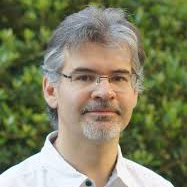 Biosketch : Jean-Pierre Levraud est reconnu pour ses travaux pionniers sur la réponse antivirale innée dans le modèle du poisson-zèbre. Dernièrement, il s’est focalisé sur les infections du système nerveux central et la neuroinflammation. Son équipe utilise la larve du poisson-zèbre pour étudier comment les virus neurotropes, tels que le virus de Sindbis, se propagent dans le système nerveux central et comment la réponse immunitaire de l’hôte, médiée par les interférons de type I, limite cette dissémination. Ces recherches ont des implications majeures pour la compréhension des encéphalites virales et des troubles neurologiques associés. Il est aussi le directeur de TEFOR Paris-Saclay, unité de service qui promeut les modèles aquatiques, avec des services d’édition du génome et de phénotypage.
Biosketch : Jean-Pierre Levraud est reconnu pour ses travaux pionniers sur la réponse antivirale innée dans le modèle du poisson-zèbre. Dernièrement, il s’est focalisé sur les infections du système nerveux central et la neuroinflammation. Son équipe utilise la larve du poisson-zèbre pour étudier comment les virus neurotropes, tels que le virus de Sindbis, se propagent dans le système nerveux central et comment la réponse immunitaire de l’hôte, médiée par les interférons de type I, limite cette dissémination. Ces recherches ont des implications majeures pour la compréhension des encéphalites virales et des troubles neurologiques associés. Il est aussi le directeur de TEFOR Paris-Saclay, unité de service qui promeut les modèles aquatiques, avec des services d’édition du génome et de phénotypage.
- Prof. Roberto Cattaneo (Mayo Clinics, Rochester, USA) “Virus tropism: beyond canonical receptors” Vendredi 27 Juin 2025 à 14h (Salle Marcel Dorée)
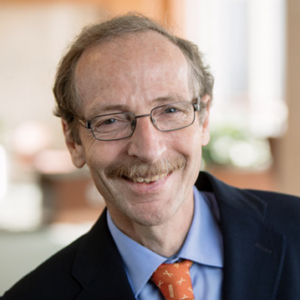
Abstract: Viruses cause disease after entering specific cell types, sometimes through distinct receptors. Less frequently, viruses cause disease by adapting to a tissue. We have reconstructed the sequence of mutational events favoring lethal measles virus brain spread. We will present new insights on the mechanisms by which a matrix protein mutation crucial for brain tropism acquisition reconfigures the actin cytoskeleton.
- Prof. Cécile Malnou (Université de Toulouse) “Placental extracellular vesicles during viral congenital infections: Friend or foe?” Vendredi 20 Juin 2025 à 11h (Salle Marcel Dorée)
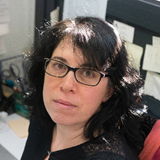 Biosketch: Cécile Malnou is Professor of Virology at Toulouse III University and co-head of the ViNeDys (Viral Infection and Neuronal Dysfunction) team at the Institut Toulousain des Maladies Infectieuses et Inflammatoires (Inserm Infinity). Her team is conducting pioneering research about congenital viral infections, with a particular focus on human cytomegalovirus and Zika virus. In particular, she is exploring the role of placental extracellular vesicles in the placenta-fetal brain dialogue during fetal brain development. She will present her recent work on the ambivalent role of placental extracellular vesicles in congenital viral infections.
Biosketch: Cécile Malnou is Professor of Virology at Toulouse III University and co-head of the ViNeDys (Viral Infection and Neuronal Dysfunction) team at the Institut Toulousain des Maladies Infectieuses et Inflammatoires (Inserm Infinity). Her team is conducting pioneering research about congenital viral infections, with a particular focus on human cytomegalovirus and Zika virus. In particular, she is exploring the role of placental extracellular vesicles in the placenta-fetal brain dialogue during fetal brain development. She will present her recent work on the ambivalent role of placental extracellular vesicles in congenital viral infections.
- Dr. Nicolas Personnic (CIRI, Lyon) « Are all Legionella created equal? » Vendredi 6 juin 2025 à 11h (Salle Marcel Dorée).
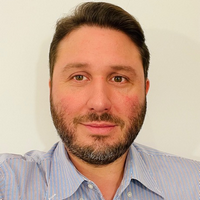 Biosketch: Nicolas Personnic is a CNRS researcher and the founder of the Persistence and Single-Cell Dynamics of Respiratory Pathogens (PERSIST) team at the Centre International de Recherche en Infectiologie (CIRI) in Lyon. Previously, he led a junior research group at the University of Zürich, supported by the Swiss National Science Foundation Ambizione program. The PERSIST team investigates bacterial phenotypic heterogeneity—a conserved phenomenon in which individual bacteria transiently express alternative phenotypes to enhance the performance of the entire isogenic population. Nicolas’ research addresses three key questions: How does biological heterogeneity drive pathogen phenotypic variation? How does this variation shape the infection process? And how does it contribute to treatment failures? Nicolas focuses in antibiotic persisters—individual bacteria within an otherwise susceptible population that transiently evade antibiotic killing, complicating treatment and promoting infection relapse. Over the past years, he has developed single-cell technologies and methodologies to explore the biology of persisters within hosts, introducing new concepts in the field of bacterial persistence.
Biosketch: Nicolas Personnic is a CNRS researcher and the founder of the Persistence and Single-Cell Dynamics of Respiratory Pathogens (PERSIST) team at the Centre International de Recherche en Infectiologie (CIRI) in Lyon. Previously, he led a junior research group at the University of Zürich, supported by the Swiss National Science Foundation Ambizione program. The PERSIST team investigates bacterial phenotypic heterogeneity—a conserved phenomenon in which individual bacteria transiently express alternative phenotypes to enhance the performance of the entire isogenic population. Nicolas’ research addresses three key questions: How does biological heterogeneity drive pathogen phenotypic variation? How does this variation shape the infection process? And how does it contribute to treatment failures? Nicolas focuses in antibiotic persisters—individual bacteria within an otherwise susceptible population that transiently evade antibiotic killing, complicating treatment and promoting infection relapse. Over the past years, he has developed single-cell technologies and methodologies to explore the biology of persisters within hosts, introducing new concepts in the field of bacterial persistence.
- Dr. Jérémy Dufloo (Institute of Integrative Systems Biology – Espagne) « Entry of animal viruses into human cells: role in zoonosis, molecular determinants and receptor usage ». Vendredi 11 avril 2025 à 11h (Salle Marcel Dorée).

Biosketch: Jérémy Dufloo performed his Ph.D. in Olivier Schwartz’s lab at the Institut Pasteur in Paris, where he studied the antiviral activities of anti-HIV-1 broadly neutralizing antibodies and anti-SARS-CoV-2 antibodies. In 2021, he moved to Valencia (Spain) for a postdoc in the laboratory of Rafael Sanjuán at the Institute of Integrative Systems Biology (I2SysBio). Using large-scale functional screening of viral receptor-binding proteins, he has investigated the role of viral entry in zoonosis and the molecular determinants of entry of animal and human viruses.
- Pr. Tarja Malm (Institut A.I.Virtanen – Finlande) « Biopsies from idiopathic normal pressure hydrocephalus patients as a window to the events of early Alzheimer’s disease: Beta-amyloid and tau pathologies alter synaptic transmission in human brain » Lundi 5 Mai à 14h00 (salle Marcel Dorée)
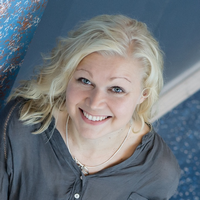 Biosketch: Tarja Malm is Professor in Molecular Neurobiology and the head of the Neuroinflammation research group at the A.I.Virtanen Institute, University of Eastern Finland. She is also the head of the “In vitro and ex vivo electrophysiology core facility” belonging to the Biocenter Kuopio and Biocenter Finland. She obtained her PhD in 2006 in Neurobiology with the focus glial cell biology and carried out her postdoctoral training at the Case Western Reserve University, USA. Her research focuses on understanding microglia-neuron signalling. Her group uses interdisciplinary approaches and develops novel, human based models to find therapeutic strategies to combat brain diseases. Her research group has pioneered development of methodologies to differentiate microglia and microglia containing cerebral organoids from human induced pluripotent stem cells. In the past years, her research group has established methodologies to evaluate neuronal circuit functionalities from cortical biopsies obtained from patients of idiopathic normal pressure hydrocephalus (iNPH) offering a novel source to study AD-related events at the molecular, functional and structural level.
Biosketch: Tarja Malm is Professor in Molecular Neurobiology and the head of the Neuroinflammation research group at the A.I.Virtanen Institute, University of Eastern Finland. She is also the head of the “In vitro and ex vivo electrophysiology core facility” belonging to the Biocenter Kuopio and Biocenter Finland. She obtained her PhD in 2006 in Neurobiology with the focus glial cell biology and carried out her postdoctoral training at the Case Western Reserve University, USA. Her research focuses on understanding microglia-neuron signalling. Her group uses interdisciplinary approaches and develops novel, human based models to find therapeutic strategies to combat brain diseases. Her research group has pioneered development of methodologies to differentiate microglia and microglia containing cerebral organoids from human induced pluripotent stem cells. In the past years, her research group has established methodologies to evaluate neuronal circuit functionalities from cortical biopsies obtained from patients of idiopathic normal pressure hydrocephalus (iNPH) offering a novel source to study AD-related events at the molecular, functional and structural level.
- Dr. Nicolas Tessandier (MIVEGEC, Montpellier) “Quantitative immunology: application in the study of normal and pathological cervical immunity“ 14 Février 2025 à 11h (Salle Marcel Dorée).

Biosketch: Nicolas did a experimental biology PhD at Université Laval, Québec on platelet extracellular vesicles in autoimmune diseases like rheumatoid arthritis or systemic lupus erythematosus. He did a post-doc in Montpellier and Collège de France (Paris) to study the mechanisms involved in HPV clearance by unsupervised flow cytometry data analysis, longitudinal clinical data analysis, Bayesian statistics and bioinformatics. He recently obtained a 4-year ExposUM fellowship to combine a vagina-on-a-chip model and clinical investigations to study the vaginal environment.
- Marius Socol (IRIM) et Dr. Benoit Charlot « Présentation du plateau micro-fluidique de l’IRIM et de la plateforme BioCampus micro-fluidique pour la biologie » – Vendredi 10 Janvier 2025 à 11h (Salle Marcel Dorée).
 Marius Socol est Ingénieur de recherche à l’IRIM. Après des études en Physique et Chimie, il fait une première thèse en « Mathématique appliquée aux systèmes de réactions complexes » à l’Université Babes-Bolyai (Roumanie) et à l’Université van Amsterdam (Pays Bas) (2005) suivie par une deuxième thèse en Biophysique sur « La synchronisation électrochimique de l’étalement cellulaire » à l’INP de Grenoble (2010) où il s’initie à la micro-fluidique. Par la suite, durant ses différents contrats postdoctoraux, il développe et applique des systèmes micro-fluidiques pour la Biologie, notamment pour l’étude de l’écoulement du sang (LAI, Marseille) ou la micromanipulation de l’ADN (LAAS, Toulouse). En 2018 il est recruté au CNRS pour rejoindre l’équipe du Dr. Marylène Mougel. Il y développe des approches de micro-fluidiques couplées à la Virologie (Viro-fluidiques) afin d’étudier la production virale à l’échelle de la cellule et du virus uniques.
Marius Socol est Ingénieur de recherche à l’IRIM. Après des études en Physique et Chimie, il fait une première thèse en « Mathématique appliquée aux systèmes de réactions complexes » à l’Université Babes-Bolyai (Roumanie) et à l’Université van Amsterdam (Pays Bas) (2005) suivie par une deuxième thèse en Biophysique sur « La synchronisation électrochimique de l’étalement cellulaire » à l’INP de Grenoble (2010) où il s’initie à la micro-fluidique. Par la suite, durant ses différents contrats postdoctoraux, il développe et applique des systèmes micro-fluidiques pour la Biologie, notamment pour l’étude de l’écoulement du sang (LAI, Marseille) ou la micromanipulation de l’ADN (LAAS, Toulouse). En 2018 il est recruté au CNRS pour rejoindre l’équipe du Dr. Marylène Mougel. Il y développe des approches de micro-fluidiques couplées à la Virologie (Viro-fluidiques) afin d’étudier la production virale à l’échelle de la cellule et du virus uniques.
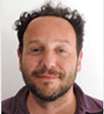 Benoit CHARLOT est directeur de recherches au CNRS affecté à l’institut d’Electronique et des Systèmes à Montpellier. Il est responsable de l’équipe Biomicrofluidique et Biophotonique et son activité de recherche concerne le développement de systèmes microphysiologiques et organes sur puces dans les domaines des neurosciences, de la cancérologie et de la physique des écoulements sanguins. Il est également impliqué dans des projets de valorisation dans le domaine du criblage en gouttelettes avec des technologies micro-fluidiques.
Benoit CHARLOT est directeur de recherches au CNRS affecté à l’institut d’Electronique et des Systèmes à Montpellier. Il est responsable de l’équipe Biomicrofluidique et Biophotonique et son activité de recherche concerne le développement de systèmes microphysiologiques et organes sur puces dans les domaines des neurosciences, de la cancérologie et de la physique des écoulements sanguins. Il est également impliqué dans des projets de valorisation dans le domaine du criblage en gouttelettes avec des technologies micro-fluidiques.
- Dr. Félix Rico (Maitre de conférence à l’Université d’Aix-Marseille et Directeur de l’unité « DyNaMo » U1325, INSERM). “Modulation of SARS-CoV-2 spike binding to ACE2 through conformational selection”. Vendredi 20 Décembre 2024 à 11h15 (Salle Marcel Dorée).
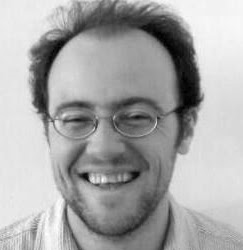 Biosketch: Dr. Félix Rico is Assistant Professor at Aix-Marseille University and Director of the DyNaMo unit U1325, INSERM at Marseille (Luminy campus). Félix Rico is a physicist by training with long-standing expertise in atomic force microscopy applied to cell mechanics, leukocyte adhesion, and protein mechanics at the single molecule level, hence linking experimental biophysics, simulations, and theory. He has pioneered the adaptation of high-speed atomic force microscopy (HS-AFM) for mechanical measurements on single molecules and cells (Rico et al. 2013, 2019; Rigato et al. 2017). Since 2018, and thanks to the support of the ERC CoG and PoC, he has been developing correlative HS-AFM and confocal microscopy together with acoustic force spectroscopy to decipher leukocyte adhesion over the broadest dynamic range.
Biosketch: Dr. Félix Rico is Assistant Professor at Aix-Marseille University and Director of the DyNaMo unit U1325, INSERM at Marseille (Luminy campus). Félix Rico is a physicist by training with long-standing expertise in atomic force microscopy applied to cell mechanics, leukocyte adhesion, and protein mechanics at the single molecule level, hence linking experimental biophysics, simulations, and theory. He has pioneered the adaptation of high-speed atomic force microscopy (HS-AFM) for mechanical measurements on single molecules and cells (Rico et al. 2013, 2019; Rigato et al. 2017). Since 2018, and thanks to the support of the ERC CoG and PoC, he has been developing correlative HS-AFM and confocal microscopy together with acoustic force spectroscopy to decipher leukocyte adhesion over the broadest dynamic range.
- Dr. Tristan Rubio (Université Libre de Bruxelles) “Bacteriocins potentiate antibiotics against the nosocomial pathogen Acinetobacter baumannii” Vendredi 8 Novembre 2024 à 11h (Salle Marcel Dorée)
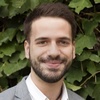
Tristan got his PhD degree here at the University of Montpellier, at IHPE, where he studied bacterial infections of the oyster Crassostrea gigas. He then joined the laboratory of Suzana Salcedo in Lyon as a postdoc, where he started working on the human bacterial pathogen Acinetobacter baumannii. There, he could show that some clinical strains of Acinetobacter could replicate within infected cells in Acinetobacter-Containing Vacuoles (ACV). He is now continuing his work on Acinetobacter in the team of Prof. Laurence Van Melderen, where he is investigating bacterial persistance to colistin and the use of bacteriocins in combination therapies with colistine.
- Dr. Melanie Hamon (Institut Pasteur, Paris) “Bacterial targeting of host chromatin, a lasting impression” Vendredi 4 Octobre 2024 à 11h (Salle Marcel Dorée)
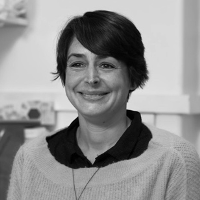
Melanie Hamon (research director at Institut Pasteur, https://research.pasteur.fr/fr/member/melanie-hamon/) is a microbiologist by training, renowned for her work on histone modifications induced by the bacteria Listeria monocytogenes and Streptococcus pneumoniae. She has headed the Chromatin & Infection Unit at the PI since 2016. Her group focuses on understanding host-bacterial processes during infection of respiratory epithelial cells by S. pneumoniae, and on the molecular details of bacterial-induced chromatin modifications in vitro and in vivo. The main aim of the laboratory’s research is to characterize the role of chromatin modifications induced during bacterial-host interactions, and their long-term consequences.
- Dr. Véronique Braud (IPMC, Sophia Antipolis) « Immune surveillance in the skin« . Vendredi 11 octobre à 11h15 (salle Marcel Dorée)
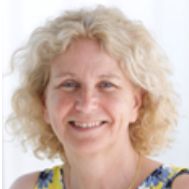 Dr Véronique BRAUD, Head of the research team “Immune regulations at muco-cutaneous surfaces” at Institut of Molecular and Cellular Pharmacology in Sophia-Antipolis, Côte d’Azur University, Nice. She has been heading a research team since 1998, at Oxford University as a Royal Society Research Fellow (1998-2001) and then at the CNRS UMR7275, INSERM U1323 in Sophia-Antipolis (2001-2011 and since 2011, co-direction with Dr Fabienne Anjuère). Her research focuses on basic immunology, immuno-oncology, inflammation and skin. Her major achievements are the identification of novel immune checkpoints: HLA-E, as ligand of CD94/NKG2 receptors and LLT1 as ligand of CD161 receptor, both regulating NK and T cell functions. She has collaborated with the pharmaceutical industry to exploit these discoveries. More recently, the work of the team has focused on characterizing the tumor immune microenvironment of cutaneous squamous cell carcinoma and on immune surveillance mechanisms in inflamed skin, combining functional analysis of human biopsies, in vitro cell models such as the development of a novel 3D organotypic skin culture model by addition of human NK cells, functional studies in mouse in vivo models, development of imaging mass cytometry to visualize spatial interactions and collaboration with mathematicians to model tumor growth control by immune cells.
Dr Véronique BRAUD, Head of the research team “Immune regulations at muco-cutaneous surfaces” at Institut of Molecular and Cellular Pharmacology in Sophia-Antipolis, Côte d’Azur University, Nice. She has been heading a research team since 1998, at Oxford University as a Royal Society Research Fellow (1998-2001) and then at the CNRS UMR7275, INSERM U1323 in Sophia-Antipolis (2001-2011 and since 2011, co-direction with Dr Fabienne Anjuère). Her research focuses on basic immunology, immuno-oncology, inflammation and skin. Her major achievements are the identification of novel immune checkpoints: HLA-E, as ligand of CD94/NKG2 receptors and LLT1 as ligand of CD161 receptor, both regulating NK and T cell functions. She has collaborated with the pharmaceutical industry to exploit these discoveries. More recently, the work of the team has focused on characterizing the tumor immune microenvironment of cutaneous squamous cell carcinoma and on immune surveillance mechanisms in inflamed skin, combining functional analysis of human biopsies, in vitro cell models such as the development of a novel 3D organotypic skin culture model by addition of human NK cells, functional studies in mouse in vivo models, development of imaging mass cytometry to visualize spatial interactions and collaboration with mathematicians to model tumor growth control by immune cells.
- Dr. Mustapha Si Tahar (Centre d’Etude des Pathologies Respiratoires (CEPR), Tours) « Metabolic control of virus-induced lung inflammation » Mardi 1er octobre à 11h, Salle IGMM.
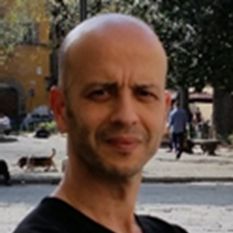
Mustapha Si-Tahar est le Directeur du Centre d’Etude des Pathologies Respiratoires (« CEPR ») à Tours. Il supervise quatre équipes de recherche et environ 90 personnes, et il est également le responsable-adjoint de l’équipe « Physiopathologie des Infections Pulmonaires ». Il a obtenu son doctorat en inflammation vasculaire à l’Institut Pasteur en 1997, puis a réalisé des recherches postdoctorales sur les réponses immunitaires mucosales à l’Emory University (Atlanta) et au Massachusetts General Hospital (Boston). Recruté à l’INSERM en 2001, il est revenu à l’Institut Pasteur pour étudier les principaux récepteurs de l’immunité innée et voies de signalisation activés dans l’épithélium pulmonaire infecté par des bactéries et des virus avant de s’installer à Tours en 2012 pour créer le CEPR. M. Si-Tahar possède une solide expérience dans le domaine de la réponse innée au virus de la grippe.
Le métabolisme et l’immunité, historiquement des domaines de recherche cloisonnés, ont récemment convergé sous le concept d’immunométabolisme. Dans le contexte de l’infection par le virus de la grippe, mon équipe a montré que la muqueuse pulmonaire subit une reprogrammation métabolique, conduisant à l’accumulation de métabolites spécifiques appelés métabokines. Nous avons révélé la double fonctionnalité de certaines métabokines, qui régulent les réponses des cellules immunitaires de l’hôte par la modulation des signaux inflammatoires et l’induction de modifications post-traductionnelles. Simultanément, ces composés perturbent directement ou indirectement la réplication du virus de la grippe. Ces découvertes offrent un potentiel majeur pour le développement de traitements innovants ciblant l’inflammation et les infections virales.
- Dr. Zuzana Macek Jílková (Institute for Advanced Biosciences – Grenoble) « Immune system during development, progression and treatment of chronic liver diseases » Vendredi 13 Septembre 2024 à 11h, Salle Marcel Dorée.
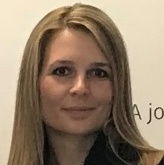 Dr. Zuzana Macek Jílková, is a researcher specializing in translational research in hepatology and immunology. Since 2018, she has led research projects at CHU Grenoble Alpes and Institute for Advanced Biosciences, focusing on the immune system’s role in chronic liver disease development, progression, and treatment. Prior to this, she completed postdoctoral stages in the field of preclinical testing of hepatocellular carcinoma therapies and endothelial dysfunction in cardiovascular diseases. Dr. Macek Jílková earned her PhD in Biochemistry and Pathobiochemistry from Charles University in Prague in 2010 and her HDR from the University Grenoble Alpes in 2020, establishing herself as an expert in chronic liver diseases.
Dr. Zuzana Macek Jílková, is a researcher specializing in translational research in hepatology and immunology. Since 2018, she has led research projects at CHU Grenoble Alpes and Institute for Advanced Biosciences, focusing on the immune system’s role in chronic liver disease development, progression, and treatment. Prior to this, she completed postdoctoral stages in the field of preclinical testing of hepatocellular carcinoma therapies and endothelial dysfunction in cardiovascular diseases. Dr. Macek Jílková earned her PhD in Biochemistry and Pathobiochemistry from Charles University in Prague in 2010 and her HDR from the University Grenoble Alpes in 2020, establishing herself as an expert in chronic liver diseases.
Liver diseases, such as chronic hepatitis B and C, alcoholic liver disease, and metabolic dysfunction-associated steatohepatitis, are major global health challenges due to their high prevalence and potential to progress into hepatocellular carcinoma (HCC), the most common type of primary liver cancer. In response to this, emerging treatment strategies in hepatology are increasingly centered around modulating intrahepatic immune responses. In our laboratory, we focus on monitoring immune cells within tumors, the liver, and circulation in patients with hepatocellular carcinoma and hepatitis B, with an emphasis on identifying predictive factors for therapy response. In parallel, we assess the efficacy and safety of new drugs using preclinical models that accurately simulate human HCC. To move beyond traditional animal models, we are also developing novel in ovo (in egg) systems to screen and validate new therapeutic agents targeting liver cancer and inflammation.
- Prof. Maddy Parsons (Randall Centre at King’s college London) “Epithelial contributions to respiratory disease” Mardi 24 Septembre 2024 à 11h, Salle Marcel Dorée.
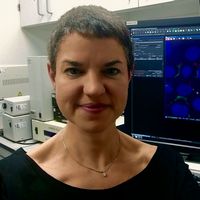
Maddy is Professor of Cell Biology in the Randall Centre at King’s, and University Dean for Research Excellence. Her research focuses on understanding how cells sense and respond to the microenvironment through receptor-mediated signalling in diseases including cancer and fibrosis. Her team use novel advanced imaging approaches to visualise signalling events in cells in complex 3D environments. Her research is highly multi-disciplinary, working with physicists, engineers, clinicians, data/computational scientists and chemists to develop new approaches to study complex spatio-temporal signalling events in living cells and tissues. She also collaborates extensively with the biopharma industry to translate findings for patient benefit. Maddy is director of the national BioImagingUK network, leads the UK EuroBioImaging Node and is currently seconded part-time to the UK Medical Research Council national funding agency where she oversees the molecular and cellular medicine portfolio. Maddy is a fellow of the Royal Microscopical Society and Royal Society of Biology and was recently elected to the Academy of Medical Sciences.
- Prof. Anna Kajaste (University of Pavia, Italy) “Dissecting Innate Immunity and Nucleic Acid Sensing in Gene Therapy” Vendredi 5 Juillet 2024 à 11h, Salle Marcel Dorée.
 Anna Kajaste-Rudnitski (AKR)’s training is in molecular virology and innate immunity. After studying innate immune responses and genetic susceptibility to flaviviral infections during her PhD at the Pasteur Institute, Paris, France, she continued her post-doctoral training in molecular virology at the San Raffaele Scientific Institute, OSR, Milan, Italy, working on Influenza and HIV. She then joined the San Raffaele Telethon Institute for Gene Therapy (SR-Tiget), OSR, in Milan as Project Leader in 2012, promoted Group Leader in July 2016. Since October 2023 AKR is Full Professor of Molecular Biology at the University of Pavia and pursues her research at the Department of Biology and Biotechnologies.
Anna Kajaste-Rudnitski (AKR)’s training is in molecular virology and innate immunity. After studying innate immune responses and genetic susceptibility to flaviviral infections during her PhD at the Pasteur Institute, Paris, France, she continued her post-doctoral training in molecular virology at the San Raffaele Scientific Institute, OSR, Milan, Italy, working on Influenza and HIV. She then joined the San Raffaele Telethon Institute for Gene Therapy (SR-Tiget), OSR, in Milan as Project Leader in 2012, promoted Group Leader in July 2016. Since October 2023 AKR is Full Professor of Molecular Biology at the University of Pavia and pursues her research at the Department of Biology and Biotechnologies.
The AKR Lab studies the molecular mechanisms of host-vector interplay and innate immunity in the context of gene therapy and investigates these pathways in the context of pathological conditions of the central nervous systems and autoimmune diseases. The long-term goal is to provide insight into how pathogen recognition and consequent innate immune signaling may affect efficacy and safety of gene therapy approaches in clinically relevant target cells as well as to shed light on how these same pathways may contribute to autoimmune and inflammatory pathologies.
- Dr. Alexander Francis Palazzo, (Harvard Medical School) « How mRNA nuclear export allows you to live with a genome filled with junk DNA » 7 Juin 2024 à 11h00, Salle Marcel dorée.

Alexander Francis Palazzo was born and raised in Montreal, Canada. As a graduate student in Gregg Gundersen’s laboratory at Columbia University, he discovered two major pathways that regulate cell polarity in migrating fibroblasts. After receiving his PhD in 2003, he moved to Tom Rapoport’s laboratory at Harvard Medical School where he was a Jane Coffin Childs Postdoctoral Fellow. There, he investigated how newly synthesized mRNA is exported from the nucleus and then targeted to specific sites in the cytoplasm of mammalian cells, such as the surface of the endoplasmic reticulum. In 2009 he started his lab in the Biochemistry Department. Besides his work on mRNA export and localization, Dr. Palazzo is interested in how biological information is extracted from the mammalian genome. He has published several well-regarded reviews on how mRNA processing and nuclear export is used to sort useful information from a genome that is mostly filled with junk DNA.
- Dr. Nicoletta Casartelli (Institut Pasteur – Paris) « T Cells, Bacteria and HIV-1: a complex interplay » Vendredi 26 Avril 2024 à 11h, Salle Marcel Dorée.
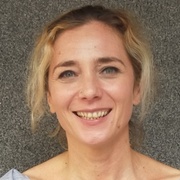
Nicoletta Casartelli is currently a senior research scientist at the Pasteur Institute (Paris) in the Virus and Immunity Unit led by O. Schwartz. Nicoletta completed her studies in biology, with a master’s in molecular biology, at the University of Milan in Italy. Then, she obtained her PhD in Immunology in Rome, at the University of Tor Vergata. In 2005, she joined the Virus and Immunity Unit for her postdoctoral internship, where she has been working ever since. Over the years, N. Casartelli has worked on several fundamental aspects of HIV-1 research. Her publications cover the role of HIV-1 accessory proteins during viral replication, cellular restriction factors, as well as viral envelope glycoproteins. For the past few years, N. Casartelli has been interested in the interactions between bacteria and HIV-1 and how these interactions might influence viral replication and its transmission.
- Dr. Virgile Rat (Munich) « Virology Unveiled : A Closer Look Through Advanced Fluorescence Microscopy » Lundi 29 Avril 2024 à 14h, Salle Philippe Jeanteur.
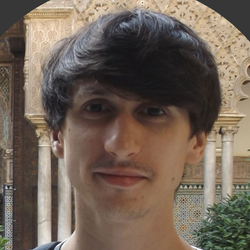 Microscopy techniques have revolutionnized our understanding of virology, offering unprecedented insights into the dynamic of the life cycles and the interactions of viruses with their host cells. Cutting edge microscopy techniques applied to viral morphogenesis will be presented using examples on the Hepatitis B Virus and HIV. Virgile Rat studied infectiology at University of Tours and quickly specialized in virology. He performed a PhD in the lab of Pr Philippe Roingeard where he provided insightful advances concerning the Hepatitis B Virus assembly. He got awarded by the ANRS for his thesis by involving biophysics and advanced fluorescence microscopy. He is now doing his postdoc in Don C. Lamb’s lab, Munich, exploring different microscopy techniques applied to HIV.
Microscopy techniques have revolutionnized our understanding of virology, offering unprecedented insights into the dynamic of the life cycles and the interactions of viruses with their host cells. Cutting edge microscopy techniques applied to viral morphogenesis will be presented using examples on the Hepatitis B Virus and HIV. Virgile Rat studied infectiology at University of Tours and quickly specialized in virology. He performed a PhD in the lab of Pr Philippe Roingeard where he provided insightful advances concerning the Hepatitis B Virus assembly. He got awarded by the ANRS for his thesis by involving biophysics and advanced fluorescence microscopy. He is now doing his postdoc in Don C. Lamb’s lab, Munich, exploring different microscopy techniques applied to HIV.
- Dr. Mathieu Frechin (Université de Zurich / Nanolive) « Capturing unperturbed biological dynamics » Vendredi 29 Mars 2024 à 11h, Salle Marcel Dorée.
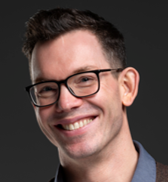
Assessing the impact of SARS-CoV-2 on organelle dynamics allows a better understanding of the mechanisms of viral replication. I will present the combination of label-free holo-tomographic microscopy (HTM) with Artificial Intelligence (AI) to visualize and quantify the subcellular changes triggered by SARS-CoV-2 infection. He will discuss the subcellular remodeling induced by SARS-CoV-2 infection and how AI combined with microscopy allows to study in real-time the dynamics of cell populations and their content.
Mathieu obtained a Master in Biophysics in Strasbourg, dealt with mitochondria during his PhD, and spent six years at ETH/UNI Zurich to study the role of biological membranes in processing signaling information, and to do so developed systems biology approaches from the bench to the computer, including the development of solutions for image analysis. His expertise covers cell, systems and molecular biology, AI and more specifically AI in computer vision. He then moved to industry and is now the director for AI and Biology at Nanolive, driving the development of innovative quantitative biology research and applications at Nanolive using AI-driven technologies.
- Dr. Lucie Etienne (CIRI – Lyon) « Genomic and functional diversification of the bat innate immunity in response to viral infections » Vendredi 15 Mars 2024, Salle Marcel Dorée.
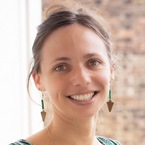 Lucie did her PhD in Montpellier, in Martin Peeters’ lab, on the origin of HIV, at the interface of virology, phylogeography and primatology. Intrigued by the viral molecular evolution that took place during these cross-species transmissions, she joined for her postdoctoral research Michael Emerman’s Lab at Fred Hutch Research Center, Seattle, WA, USA, who developed the “indirect paleovirology” concept with Harmit Malik. They notably discovered key functional evolution events that occurred at the ancient origin of HIV-1. Thanks to this interdisciplinary training, at the CIRI (Centre International de Recherche en Infectiologie), she uses today an innovative approaches to understand how viruses and hosts have shaped each other over evolutionary time. This research program allows her group to discover novel immune effectors and to understand how, as a result, host species may be naturally resistant to viral emergences. She was awarded the 2015 amfAR Mathilde Krim independence and the 2024 CNRS Bronze medal. Their recent work on bat-virus adaptation was awarded the “2023 Grandes Avancées Francaises en Biologie par l’Académie des Sciences”. Her talk will present the functional evolution of virus-host interactions, and how they impacted cross-species transmissions allowing a better understanding on how past viral epidemics have shaped modern host genomes.
Lucie did her PhD in Montpellier, in Martin Peeters’ lab, on the origin of HIV, at the interface of virology, phylogeography and primatology. Intrigued by the viral molecular evolution that took place during these cross-species transmissions, she joined for her postdoctoral research Michael Emerman’s Lab at Fred Hutch Research Center, Seattle, WA, USA, who developed the “indirect paleovirology” concept with Harmit Malik. They notably discovered key functional evolution events that occurred at the ancient origin of HIV-1. Thanks to this interdisciplinary training, at the CIRI (Centre International de Recherche en Infectiologie), she uses today an innovative approaches to understand how viruses and hosts have shaped each other over evolutionary time. This research program allows her group to discover novel immune effectors and to understand how, as a result, host species may be naturally resistant to viral emergences. She was awarded the 2015 amfAR Mathilde Krim independence and the 2024 CNRS Bronze medal. Their recent work on bat-virus adaptation was awarded the “2023 Grandes Avancées Francaises en Biologie par l’Académie des Sciences”. Her talk will present the functional evolution of virus-host interactions, and how they impacted cross-species transmissions allowing a better understanding on how past viral epidemics have shaped modern host genomes.
- Dr. Yonatan Ganor (Institut Cochin) « Neuro-immune-epithelial interplay in mucosal viral infections » Mercredi 6 Mars 2024 à 11h00 (Salle Marcel Dorée).

After a successful PhD on neuroimmunology at the Weizmann Institute in Rehovot / Israel (2002-2006), Yonatan moved to the Cochin Institute in Paris / France as a postdoctoral fellow (2006-2013) to investigate HIV-1 mucosal entry and persistence. During this period, he pioneered the use of human tissues derived from the male genitals of healthy or HIV-1 infected patients and he developed unique experimental tissue explants and reconstruction models which allowed him to unveil host immune cells critically involved in the very first events of HIV-1 transmission of infection or identified as HIV-1 reservoirs. Yonatan was then recruited as Research Associate to the CNRS in 2013 and became group leader in 2017. He was recently promoted to Research Director (2022) and he will co-direct the “Mucosal entry, persistence and neuro-immune control of HIV-1 and other viruses” from 2025. The current scientific interests of his team are in neuroimmune interactions that control transmission of human mucosal viruses, especially focusing on the neuropeptide calcitonin gene-related peptide (CGRP) for which he described an unexpected anti-viral role against HIV-1 as well as HSV-2 and SARS-CoV-2.
- Dr. Silke Stertz, (University of Zurich) « MHC class II as novel entry receptor of influenza A viruses« – 1er Mars 2024 à 11h00, Salle Marcel dorée.
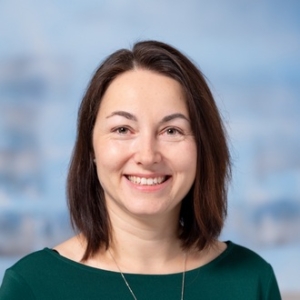 Silke Stertz studied biology in Freiburg, Germany, where she stayed on to obtain her PhD in the lab of Prof. Otto Haller. She then trained as postdoctoral fellow in the lab of Prof. Peter Palese at Icahn School of Medicine at Mount Sinai in New York, U.S.. Since 2011 she leads her own research group at the Institute of Medical Virology (University of Zurich), where she was promoted to Associate Professor in 2019. Her work focuses on influenza virus-host cell interactions, particularly at the stage of viral entry.
Silke Stertz studied biology in Freiburg, Germany, where she stayed on to obtain her PhD in the lab of Prof. Otto Haller. She then trained as postdoctoral fellow in the lab of Prof. Peter Palese at Icahn School of Medicine at Mount Sinai in New York, U.S.. Since 2011 she leads her own research group at the Institute of Medical Virology (University of Zurich), where she was promoted to Associate Professor in 2019. Her work focuses on influenza virus-host cell interactions, particularly at the stage of viral entry.
- Dr. Michele Trabucchi (INSERM – Nice) « Decoding the mode of microRNA binding to mRNA« . Lundi 23 Février 2024 (11h en Salle Marcel Dorée).
 Michele Trabucchi is Directeur de Recherche at the Inserm and Group Leader at the Mediterranean Center for Molecular Medicine in Nice (Inserm U1065). Michele heads the team « Control of Gene Expression ». After an European PhD on Molecular Biology at the University of Rouen, he moved to the University of California at San Diego in 2004 to perform a post-doctoral training in Michael Rosenfeld’s laboratory on gene expression regulation in human cells. During the post-doctoral training he made important discoveries on new biochemical mechanisms of miRNA biogenesis, pointing out the biological relevance of the terminal loop sequence of microRNA precursors as an important CIS regulator of miRNA processing in normal and pathological events of cell physiology (Trabucchi et al, Nature 2009). Thanks to the ATIP/Avenir and the European Curie Integration Grant programs, Michele Trabucchi started his own team in Nice in 2011. His research interests are focused on miRNA biology and other small RNA species in cellular models that pertain to pathophysiology of human cells, including macrophages and stem cells, using biochemical, molecular biology and computational approaches.
Michele Trabucchi is Directeur de Recherche at the Inserm and Group Leader at the Mediterranean Center for Molecular Medicine in Nice (Inserm U1065). Michele heads the team « Control of Gene Expression ». After an European PhD on Molecular Biology at the University of Rouen, he moved to the University of California at San Diego in 2004 to perform a post-doctoral training in Michael Rosenfeld’s laboratory on gene expression regulation in human cells. During the post-doctoral training he made important discoveries on new biochemical mechanisms of miRNA biogenesis, pointing out the biological relevance of the terminal loop sequence of microRNA precursors as an important CIS regulator of miRNA processing in normal and pathological events of cell physiology (Trabucchi et al, Nature 2009). Thanks to the ATIP/Avenir and the European Curie Integration Grant programs, Michele Trabucchi started his own team in Nice in 2011. His research interests are focused on miRNA biology and other small RNA species in cellular models that pertain to pathophysiology of human cells, including macrophages and stem cells, using biochemical, molecular biology and computational approaches.
- Dr. William Bakhache (NIH-Bethesda) « Uncovering Structural Plasticity of Enterovirus A through Deep Insertional and Deletional Scanning« . Lundi 19 Février 2024 à 11h00. Salle Marcel Dorée.
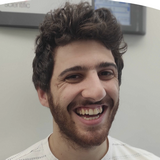 William Bakhache, Ph.D., is a postdoctoral fellow at the Quantitative Virology and Evolution Unit led by Patrick Dolan, Ph.D., at the National Institutes of Health. His research is focused on studying the evolutionary constraints of RNA virus evolution. He has adapted deep mutational scanning methods to scan for fitness effects of all possible mutations in viral genomes. In his talk, William will share his work on uncovering Enterovirus A’s structural plasticity through deep insertion and deletion scanning.
William Bakhache, Ph.D., is a postdoctoral fellow at the Quantitative Virology and Evolution Unit led by Patrick Dolan, Ph.D., at the National Institutes of Health. His research is focused on studying the evolutionary constraints of RNA virus evolution. He has adapted deep mutational scanning methods to scan for fitness effects of all possible mutations in viral genomes. In his talk, William will share his work on uncovering Enterovirus A’s structural plasticity through deep insertion and deletion scanning.
- Dr. Yoshiho Ikeuchi (IIS – University of Tokyo) »Building circuits by connecting neural organoids » Vendredi 15 Décembre 2023 à 11h00 (Salle Marcel Dorée).
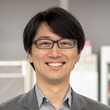 Yoshiho Ikeuchi is a researcher in IIS, The University of Tokyo. He is also affiliated with Institute for AI and Beyond, and Department of Chemistry and Biotechnology, School of Engineering in the University. He received PhD degree in 2007 at Department of Chemistry and Biotechnology in The University of Tokyo. He did his post-doctoral neuroscience research at Harvard Medical School from 2007 to 2013, and at Washington University in St. Louis from 2013 to 2014. He was appointed as Lecturer in 2014, and then Associate Professor in 2018 at Institute of Industrial Science, The University of Tokyo. His goal of research is to construct nervous tissues from human multipotent stem cells (iPS cells) and to functionalize them to better understand the mechanisms of the brain. The group develops a technology to connect neural organoids via an axon bundle to model neuronal circuits, and to analyze network activity of the neural tissues using multielectrode arrays. The groups also use the tissues to analyze local and activity-dependent protein synthesis regulations in the neurons.
Yoshiho Ikeuchi is a researcher in IIS, The University of Tokyo. He is also affiliated with Institute for AI and Beyond, and Department of Chemistry and Biotechnology, School of Engineering in the University. He received PhD degree in 2007 at Department of Chemistry and Biotechnology in The University of Tokyo. He did his post-doctoral neuroscience research at Harvard Medical School from 2007 to 2013, and at Washington University in St. Louis from 2013 to 2014. He was appointed as Lecturer in 2014, and then Associate Professor in 2018 at Institute of Industrial Science, The University of Tokyo. His goal of research is to construct nervous tissues from human multipotent stem cells (iPS cells) and to functionalize them to better understand the mechanisms of the brain. The group develops a technology to connect neural organoids via an axon bundle to model neuronal circuits, and to analyze network activity of the neural tissues using multielectrode arrays. The groups also use the tissues to analyze local and activity-dependent protein synthesis regulations in the neurons.
- Dr. Cyrille Mathieu, CRCN CNRS, HDR, Group Leader NITROVIRE Lab (CIRI Lyon). « Measles virus NeuroInvasion can rely on a single mutation » Vendredi 8 Décembre 2023 à 11h00 (Salle Marcel Dorée).
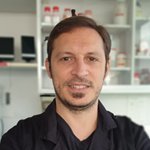 After a thesis on the pathogenesis of the Nipah virus at the human virology laboratory (Lyon, France), He left for a postdoc at Weil Medical College of Cornell University (NYC, USA) to study the fusion machinery of Mononegavirales and develop fusion inhibitors. He returned with an ANR Retour Post doc to the CIRI to develop an Axis of study of neuroInvasion by Paramyxoviruses. He obtained then in 2017 a full academic position of research associate at Columbia University (NY) to co-lead a group on viral evolution and neuroinvasion. He entered the CRCN position at CNRS in 2018 in Lyon, before founding in 2021 the emerging group NITROVIRE at the CIRI focusing on neuroinvasion and the development of encephalitis following infection with biosafety level 2 to 4 pathogens.
After a thesis on the pathogenesis of the Nipah virus at the human virology laboratory (Lyon, France), He left for a postdoc at Weil Medical College of Cornell University (NYC, USA) to study the fusion machinery of Mononegavirales and develop fusion inhibitors. He returned with an ANR Retour Post doc to the CIRI to develop an Axis of study of neuroInvasion by Paramyxoviruses. He obtained then in 2017 a full academic position of research associate at Columbia University (NY) to co-lead a group on viral evolution and neuroinvasion. He entered the CRCN position at CNRS in 2018 in Lyon, before founding in 2021 the emerging group NITROVIRE at the CIRI focusing on neuroinvasion and the development of encephalitis following infection with biosafety level 2 to 4 pathogens.
- Fabio Romerio (Johns Hopkins University, Baltimore) « The HIV-1 antisense gene asp: the eclectic lifestyle of a contrarian » Lundi 27 Novembre 2023 à 14h00 (Salle Marcel Dorée)

HIV-1 antisense gene asp was discovered more than 30 years ago, but its role in the virus lifecycle remains largely a mystery. This seminar will discuss recent advances in our understanding on the creation and function of this neglected HIV-1 gene ». Dr. Romerio obtained his doctoral degree in Biomedical Sciences with a specialization in Molecular Genetics in 1992 from the University of Pavia (Italy). After completing a first postdoctoral fellowship at the Institute of Biochemical and Evolutionary Genetics in Pavia (Italy), Dr. Romerio took a second postdoctoral fellowship in 1995 with Dr. David Margolis at the University of Maryland, Baltimore, where he began his work on transcriptional regulation of HIV-1. When Dr. Robert Gallo established the Institute of Human Virology at the University of Maryland, Dr. Romerio started a third postdoctoral fellowship with Dr. Gallo working on mechanisms of HIV-1 immunopathogenesis focusing on the role of type I interferons. In 2004, Dr. Romerio was promoted to the position of Assistant Professor in the Division of Basic Science at the Institute of Human Virology and he began his studies on HIV-1 latency and epigenetic regulation of HIV-1 transcription. This led to his interest in the HIV-1 antisense transcript AST and subsequently on the antisense protein ASP. In 2020, Dr. Romerio was recruited to the Johns Hopkins School of Medicine as an Associate Professor where he continues his studies on the HIV-1 antisense gene asp.
- Dr. Maximiliano Gutierrez (The Francis Crick Institute – London) « Mycobacterium tuberculosis infection of host cells in time and space” Vendredi 24 Novembre 2023 à 11h00 (Salle Marcel Dorée).
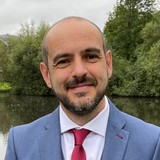
Max is a cell biologist originally from Mendoza, Argentina. In 2005, he obtained a PhD in cell biology from the University of San Luis, Argentina. During his PhD work, he discovered a novel innate immune pathway, later named “Xenophagy”. In 2006, he moved to EMBL in Heidelberg, Germany as a postdoc in Gareth Griffiths Laboratory, first as a fellow of the Alexander von Humboldt Foundation and then as an EMBO fellow. His work in Heidelberg focused on the cell biology and imaging of macrophages; it was also in Heidelberg that he felt in love with Electron Microscopy. In 2009, he started his independent research group at the Helmholtz Centre for Infection Research in Braunschweig, Germany as head of the Junior Research Group ‘Phagosome Biology’. In 2012, he was recruited as a Program Leader Track at the Medical Research Council’s National Institute for Medical Research, which became part of the Francis Crick Institute in 2015. Since 2018, he is a Senior Group Leader at the Francis Crick Institute.
- Dr. Laurence Abrami (EPFL – Lausanne) « How S-acylation affects all major cellular process: focus on SARS-CoV-2 Spike » Vendredi 27 Octobre 2023 à 11h (Salle Marcel Dorée)
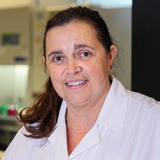
Protein S-acylation, often referred to as S-palmitoylation, has emerged as a critical regulator of many signaling pathways. S-acylation is a reversible post-translational lipid modification that confers significant hydrophobicity, and thereby the association with membranes. It can concern up to 10-20% of the human proteome. Understanding of the function of acyltransferases and de-acylating enzymes, the impact of these enzymes on protein function, cellular processes, and physiological pathways, as well as their spatiotemporal regulation will be presented in the seminar. During SARS-CoV-2 infection, we and others have shown that S-acylation of Spike is mediated predominantly by the ZDHHC20 acyltransferase. In the presentation, we will focus on how SARS-CoV-2 infection, whether in human cells or in mice, triggers the use of an upstream transcriptional start site of the zdhhc20 gene, leading to the production of a N-terminally extended enzyme, ZDHHC20-Long. ZDHHC20-Long drastically enhances Spike acylation, leading to the enhanced fatty acid decoration of the Spike trimers. As a consequence, the fusogenic capacity of Spike is augmented, and viral infectivity is optimized.
- Mini-symposium on Viruses and Immunity – Wednesday the 8th of November from 10 to 11 am, Philippe Jeanteur Room (IGMM).
Prof. Volker Thiel (University of Bern, Switzerland): “Lost in translation – generation of live-attenuated SARS-CoV-2 vaccine by genome recoding”
Prof. Sam Wilson (University of Cambridge, UK): “Innate immune barriers to viral emergence and pathogenesis”.
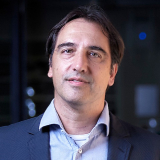 Prof. Volker Thiel (University of Bern, Switzerland) obtained his PhD from the University of Würzburg, Germany, in 1998. He did a postdoc (1998-2001) and started his own group in the same university (2001-2003). He then moved his group to the Institute of Immunobiology, Kantonal Hospital St.Gallen, in Switzerland, where he stayed until 2013. Since 2014, he has been Professor of Virology at the University of Bern and Head of Division of Virology, at Federal Food Safety and Veterinary Office FSV, Institute of Virology and Immunology, Bern and Mittelhäusern, Switzerland.
Prof. Volker Thiel (University of Bern, Switzerland) obtained his PhD from the University of Würzburg, Germany, in 1998. He did a postdoc (1998-2001) and started his own group in the same university (2001-2003). He then moved his group to the Institute of Immunobiology, Kantonal Hospital St.Gallen, in Switzerland, where he stayed until 2013. Since 2014, he has been Professor of Virology at the University of Bern and Head of Division of Virology, at Federal Food Safety and Veterinary Office FSV, Institute of Virology and Immunology, Bern and Mittelhäusern, Switzerland.
Prof. Volker Thiel is a world leading expert on coronaviruses (CoV), which he has studied for more than 20 years. His current research focuses on various aspects of the CoV replication cycle, including the regulation of genome expression or the host factors required, and on the innate immune responses induced by CoV, using cellular and in vivo models. His team has generated reverse genetic systems for many CoVs, including for instance human seasonal HCoV-229E, Mouse Hepatitis Virus, or SARS-CoV-1. His team was notably the very first to develop a molecular clone of SARS-CoV-2, as early as February 2020, and has shared it with >100 laboratories over the world. His team has published an impressive amount of studies on SARS-CoV-2 and other coronaviruses (Nature 2020, Nature 2021, Science 2021, Nature 2022, Nat Comm 2022, Autophagy 2023…).

Prof. Sam Wilson (University of Cambridge, UK) obtained his PhD from University College London (UCL), UK, in 2006. After a first postdoc at UCL (2006-2008), he did a second postdoc at Rockefeller University (USA) (2008-2012). He started his own lab at MRC University of Glasgow CVR in 2012. This year, he has moved his lab to the Institute of Therapeutic Immunology and Infectious Disease, at the University of Cambridge (UK) and he is Professor of Microbial Pathogenesis there.
Prof. Sam Wilson is a molecular virologist whose research focuses on genome-encoded antiviral defences (AKA restriction factors) and how these factors influence the replication, emergence and pathogenesis of viruses. He’s notably recently made highly significant contributions to the understanding of avian influenza A virus species barrier in humans (Nature 2023) or to natural protection against severe Covid-19 (Science 2022).
- Dr. Jomon Joseph (National Center for Cell Science, University of Pune, India) « Cell biology of Annulate Lamellae – an underexplored organelle » Mercredi 11 Octobre 2023 (Salle Marcel Dorée)
 Dr. Jomon Joseph obtained his PhD from the Indian Institute of Science, Bangalore, India on plant virology. He then carried out a post-doc with Prof. Mary Dasso at the NIH, Bethesda, USA on role of RanGTPase and SUMO in mitosis. Dr. Joseph moved to the National Centre for Cell Science, Pune, India in 2005 and started his lab. His team focuses on non-traditional roles of nucleoporins and annulate lamellae.
Dr. Jomon Joseph obtained his PhD from the Indian Institute of Science, Bangalore, India on plant virology. He then carried out a post-doc with Prof. Mary Dasso at the NIH, Bethesda, USA on role of RanGTPase and SUMO in mitosis. Dr. Joseph moved to the National Centre for Cell Science, Pune, India in 2005 and started his lab. His team focuses on non-traditional roles of nucleoporins and annulate lamellae.
- Prof. Patricia Beltão-Braga (University of São Paulo ) « Modelling the interplay between genetics and environmental risk factors for neurodevelopmental disorders » Mardi 26 Septembre 2023 (Salle Marcel Dorée)
 Patricia Beltrão-Braga is a Biologist, with a Master’s in Virology, and a Ph.D. in Molecular Biology, both from the Federal University of São Paulo (UNIFESP). She did two postdocs in Brazil, one at the School of Medicine (Cellular Biology) and the other at the School of Veterinary Medicine (Cellular Biology and Cell Therapy), both at the University of São Paulo, and a sabbatical postdoc in neuroscience at the University of California San Diego (UCSD). She is currently an Associate Professor at the Department of Microbiology at the Institute of Biomedical Sciences (ICB), University of São Paulo (USP), and Principal Investigator at Institut Pasteur de São Paulo. Using human iPSC, Dr. Beltrão-Braga’s lab explores the mechanisms involved in genetic and infectious diseases that affect the CNS. Among her projects, Dr. Beltrão-Braga is responsible for the « Tooth Fairy Project, » a Brazilian initiative that uses the stem cells of autistic children’s milk teeth to study the mechanisms involved in Autism. Her group was responsible for proving the causal relationship of the Zika virus to microcephaly using brain organoids and animal models.
Patricia Beltrão-Braga is a Biologist, with a Master’s in Virology, and a Ph.D. in Molecular Biology, both from the Federal University of São Paulo (UNIFESP). She did two postdocs in Brazil, one at the School of Medicine (Cellular Biology) and the other at the School of Veterinary Medicine (Cellular Biology and Cell Therapy), both at the University of São Paulo, and a sabbatical postdoc in neuroscience at the University of California San Diego (UCSD). She is currently an Associate Professor at the Department of Microbiology at the Institute of Biomedical Sciences (ICB), University of São Paulo (USP), and Principal Investigator at Institut Pasteur de São Paulo. Using human iPSC, Dr. Beltrão-Braga’s lab explores the mechanisms involved in genetic and infectious diseases that affect the CNS. Among her projects, Dr. Beltrão-Braga is responsible for the « Tooth Fairy Project, » a Brazilian initiative that uses the stem cells of autistic children’s milk teeth to study the mechanisms involved in Autism. Her group was responsible for proving the causal relationship of the Zika virus to microcephaly using brain organoids and animal models.
- Dr Romain Volmer (Ecole Nationale Vétérinaire de Toulouse) « Viral and host factors modulating the emergence of highly pathogenic avian influenza viruses » Vendredi 17 Mars 2023 (Salle Marcel Dorée)
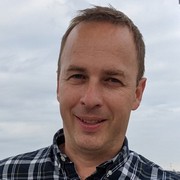 Romain Volmer holds a DVM (Doctorate of Veterinary Medicine) from the Ecole nationale vétérinaire d’Alfort and a PhD in Virology from the Institut Pasteur, Paris. Following a post-doc at the University of Cambridge, he joined the Ecole nationale vétérinaire de Toulouse, where he teaches infectious diseases and leads a research program on influenza virus evolution in the joint research unit UMR IHAP INRAE- Ecole nationale vétérinaire de Toulouse.
Romain Volmer holds a DVM (Doctorate of Veterinary Medicine) from the Ecole nationale vétérinaire d’Alfort and a PhD in Virology from the Institut Pasteur, Paris. Following a post-doc at the University of Cambridge, he joined the Ecole nationale vétérinaire de Toulouse, where he teaches infectious diseases and leads a research program on influenza virus evolution in the joint research unit UMR IHAP INRAE- Ecole nationale vétérinaire de Toulouse.
- Prof. Jan Rehwinkel (MRC Human Immunology Unit, Univ. Oxford) « Nucleic Acids Sensing by Innate Immune Receptors » Mercredi 12 Avril 2023 (Salle Marcel Dorée)
 The innate immune response is critical for host defence against viruses. Cell-intrinsic mechanisms detect virus presence and restrict virus replication. Nucleic acids are often a molecular signature of infection and are recognised by receptors including Toll-like receptors, RIG-I-like receptors and cytosolic DNA sensors. These receptors signal for the induction of innate response genes such as those encoding type I interferons. These then induce the expression of restriction factors, host proteins that limit virus replication. Our work focuses on cytosolic nucleic acid sensors, in particular RIG-I, MDA5 and cGAS. We use in vitro and in vivo models of virus infections and are interested in rare genetic diseases linked to chronic anti-viral innate immune responses. In this presentation, I will discuss our recent work on MDA5, cGAS and other nucleic acid sensors.
The innate immune response is critical for host defence against viruses. Cell-intrinsic mechanisms detect virus presence and restrict virus replication. Nucleic acids are often a molecular signature of infection and are recognised by receptors including Toll-like receptors, RIG-I-like receptors and cytosolic DNA sensors. These receptors signal for the induction of innate response genes such as those encoding type I interferons. These then induce the expression of restriction factors, host proteins that limit virus replication. Our work focuses on cytosolic nucleic acid sensors, in particular RIG-I, MDA5 and cGAS. We use in vitro and in vivo models of virus infections and are interested in rare genetic diseases linked to chronic anti-viral innate immune responses. In this presentation, I will discuss our recent work on MDA5, cGAS and other nucleic acid sensors.
- Dr. Chiara Zurzolo (Institut Pasteur) « Tunneling nanotubes: structure/function and role in the spreading of SARS-CoV-2 » Mardi 31 Janvier 2023, 15h00 (Salle Marcel Dorée)

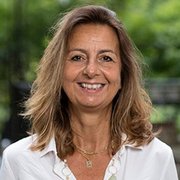 Chiara Zurzolo, MD PhD, is head of the Membrane Trafficking and Pathogenesis Unit and head of the Department of Cell Biology and Infection. In 1995, started her lab as professor of Cell Biology at Naples University Federico II, where she graduated, focusing on protein trafficking and specifically on the mechanisms of apical sorting of GPI-proteins (GPI-AP) in polarized epithelia. In 2003 she moved to the Pasteur Institute where she pioneered studies on the role of protein trafficking in prion diseases. She has made seminal discoveries in both protein trafficking and neurodegeneration. Her group has shown that the mechanism of sorting of GPI-APs (cholesterol dependent oligomerization) in the Golgi of polarized cells controls the protein function at the apical plasma membrane (2008, 2014). They uncovered the intracellular site of prion conversion and showed that prion dissemination occurs by Tunneling Nanotubes (TNTs), a new mechanism of direct intercellular communication (2009). She proposes that TNTs are involved in the spreading of different amylogenic proteins in the brain (2013) and therefore represent a suitable target to halt incurable neurodegenerative diseases. She recently showed that TNTs provide a route for SARS-CoV-2 spreading (2022).
Chiara Zurzolo, MD PhD, is head of the Membrane Trafficking and Pathogenesis Unit and head of the Department of Cell Biology and Infection. In 1995, started her lab as professor of Cell Biology at Naples University Federico II, where she graduated, focusing on protein trafficking and specifically on the mechanisms of apical sorting of GPI-proteins (GPI-AP) in polarized epithelia. In 2003 she moved to the Pasteur Institute where she pioneered studies on the role of protein trafficking in prion diseases. She has made seminal discoveries in both protein trafficking and neurodegeneration. Her group has shown that the mechanism of sorting of GPI-APs (cholesterol dependent oligomerization) in the Golgi of polarized cells controls the protein function at the apical plasma membrane (2008, 2014). They uncovered the intracellular site of prion conversion and showed that prion dissemination occurs by Tunneling Nanotubes (TNTs), a new mechanism of direct intercellular communication (2009). She proposes that TNTs are involved in the spreading of different amylogenic proteins in the brain (2013) and therefore represent a suitable target to halt incurable neurodegenerative diseases. She recently showed that TNTs provide a route for SARS-CoV-2 spreading (2022).
- Dr. Sarah Gallois-Montbrun (Institut Cochin) « From HIV-1 to SARS-CoV-2 infection: viral RNAs in all their states!« Vendredi 3 Février 2023, 11h00 (Salle Marcel Dorée)

 Sarah Gallois-Montbrun was trained in biochemistry, molecular biology and virology at Institut Pasteur and received her PhD from the University Pierre et Marie Curie in 2004. In 2005, she was granted an EMBO fellowship and moved to the Department of Infectious Diseases in the laboratory of Michael Malim at King’s College, London. Her post-doctoral research focused on the cellular roles of APOBEC3G and APOBEC3F, two restriction factors of HIV. Her work revealed that both proteins belong to large ribonucleoprotein complexes and localize to cytoplasmic structures induced by phase separation called P-bodies and Stress granules. In 2009, she was recruited as Chargée de Recherche (CR) by Inserm and joined the laboratory of Host-Pathogen Interactions co-directed by Clarisse Berlioz-Torrent and Stéphane Emiliani at Institut Cochin, France. Through a panel of techniques in cell biology (CRISPR-CAS9 KO, siRNA KD), molecular biology (HITS-CLIP, Long-read sequencing) and virology, her group focused on the role of cellular and viral factors in the fate of cellular and viral RNAs during infection by HIV-1, the causing agent of AIDS and more recently SARS-CoV-2, the causing agent of Covid-19.
Sarah Gallois-Montbrun was trained in biochemistry, molecular biology and virology at Institut Pasteur and received her PhD from the University Pierre et Marie Curie in 2004. In 2005, she was granted an EMBO fellowship and moved to the Department of Infectious Diseases in the laboratory of Michael Malim at King’s College, London. Her post-doctoral research focused on the cellular roles of APOBEC3G and APOBEC3F, two restriction factors of HIV. Her work revealed that both proteins belong to large ribonucleoprotein complexes and localize to cytoplasmic structures induced by phase separation called P-bodies and Stress granules. In 2009, she was recruited as Chargée de Recherche (CR) by Inserm and joined the laboratory of Host-Pathogen Interactions co-directed by Clarisse Berlioz-Torrent and Stéphane Emiliani at Institut Cochin, France. Through a panel of techniques in cell biology (CRISPR-CAS9 KO, siRNA KD), molecular biology (HITS-CLIP, Long-read sequencing) and virology, her group focused on the role of cellular and viral factors in the fate of cellular and viral RNAs during infection by HIV-1, the causing agent of AIDS and more recently SARS-CoV-2, the causing agent of Covid-19.
- Dr. Nolwenn Jouvenet (Institut Pasteur) « Clash of the titans: RNA viruses and interferons » Vendredi 25 Novembre 2022, 11h00 (Salle Marcel Dorée)

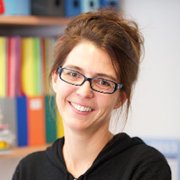 Dr. Nolwenn Jouvenet is the head of the ‘Virus sensing and signaling’ team based in the Institut Pasteur, Paris. The interaction between viruses and their hosts has been the driving force behind her research since she completed her Ph.D. at the Pirbright Institute, Surrey, UK. Her post-doctoral work at the Rockefeller University, New York, USA, focused on the mechanisms of assembly and budding of retroviruses. In 2012, she was granted a permanent position by the French state research organization CNRS. In 2015, she was awarded the prestigious EMBO Young Investigator Prize. She was promoted to Research Director by the CNRS and was granted her own laboratory by the directorship of the Institut Pasteur in 2021. Her team focuses on mechanisms underlying virus-induced innate immunity, particularly on emerging and re-emerging RNA viruses that threaten human health, such as dengue virus, Zika virus and coronaviruses.
Dr. Nolwenn Jouvenet is the head of the ‘Virus sensing and signaling’ team based in the Institut Pasteur, Paris. The interaction between viruses and their hosts has been the driving force behind her research since she completed her Ph.D. at the Pirbright Institute, Surrey, UK. Her post-doctoral work at the Rockefeller University, New York, USA, focused on the mechanisms of assembly and budding of retroviruses. In 2012, she was granted a permanent position by the French state research organization CNRS. In 2015, she was awarded the prestigious EMBO Young Investigator Prize. She was promoted to Research Director by the CNRS and was granted her own laboratory by the directorship of the Institut Pasteur in 2021. Her team focuses on mechanisms underlying virus-induced innate immunity, particularly on emerging and re-emerging RNA viruses that threaten human health, such as dengue virus, Zika virus and coronaviruses.
- Dr. Arinjay Banerjee (Université de Saskatchewan) « Lessons learnt from coronavirus – host interactions in wildlife reservoirs and spill over hosts » Vendredi 9 Décembre 2022, 11h00 (Salle Marcel Dorée)
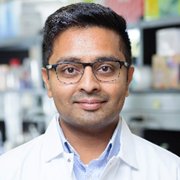
Short abstract: Bats perform important ecological roles in our ecosystem. However, bats are also reservoirs of emerging viruses that have spilled over into humans and agricultural animals to cause severe disease. These viruses include Hendra and Nipah paramyxoviruses, Ebola and Marburg filoviruses, and coronaviruses that are closely related to severe acute respiratory syndrome coronavirus (SARS-CoV), Middle East respiratory syndrome coronavirus (MERS-CoV), and the recently emerged SARS-CoV-2. Intriguingly, bats that are naturally or experimentally infected with these viruses do not show clinical signs of disease. Highly pathogenic zoonotic coronaviruses have evolved proteins that can effectively block innate and intrinsic responses in human cells. In this talk, we shall explore how coronaviruses interact with innate and intrinsic responses in their wildlife (bat) and spill over (human) hosts. We will discuss lessons learnt from our studies on bat antiviral responses and translational outcomes that will enable us to design better countermeasures for coronavirus infections in humans.
Dr. Arinjay Banerjee (PhD) is the Principal Investigator of the Laboratory of Zoonotic Viruses and Comparative Immunology at the Vaccine and Infectious Disease Organization, University of Saskatchewan, and adjunct faculty member at the Universities of Saskatchewan, Waterloo, British Columbia, and Toronto. Dr. Banerjee is the co-lead for One Health at the University of Saskatchewan. Research within Dr. Banerjee’s laboratory focuses on three main themes that are inspired by the One Health ideology, (1) virus-host interactions in wildlife reservoir species, such as bats, (2) virus-host interactions in spillover species, such as humans, and (3) viral vaccine development. Dr. Banerjee’s laboratory is a member of Canada’s Coronavirus Variants Rapid Response Network (CoVaRR-Net), and as part of this network, his laboratory investigates emerging SARS-CoV-2 variants. Dr. Banerjee completed his Master of Science degree in virology from the National Institute of Virology in India where his Master’s thesis was awarded the university gold medal. Next, Dr. Banerjee completed his PhD from the University of Saskatchewan where his doctoral thesis on coronavirus-host interactions was awarded Canada’s Governor General’s Gold medal. Dr. Banerjee’s postdoctoral research at McMaster University was awarded the Gerard Wright postdoctoral award in Infection Research and the postdoctoral fellow impact award. More recently, Dr. Banerjee was selected as CBC Saskatchewan’s Top 40 under 40.
- Dr. Esther Nolte-‘t Hoen (Utrecht University) « Egress of picornaviruses from infected cells via enclosure in Extracellular Vesicles: the ultimate package deal? » Vendredi 30 Septembre 2022, 11h00 (Salle Marcel Dorée)

Esther Nolte-‘t Hoen is associate professor at the Department of Biomolecular Health Sciences of the Faculty of Veterinary Medicine Utrecht University, the Netherlands. Nolte-‘t Hoen has been active in research on extracellular vesicles (EV) for more than 15 years and has longstanding experience in studying the formation, composition, and function of extracellular vesicles in various (patho)physiological processes, including immune responses and virus/microbial infections. She received a European Research Council Starting Grant in 2013, after which she started her own independent research group. She has developed a high-resolution flow cytometry methodology to perform high-throughput analysis of individual EV and to sort-isolate EV subpopulations for downstream analysis. Being the first to have sequenced the small RNA transcriptome of extracellular vesicles, Dr Nolte-‘t Hoen has also puts strong emphasis on analyzing EV-contained RNA types as important players in the biological effects induced by EV and as biomarkers. More recently, her research group has focused on the role of EVs in host-pathogen communication. Within this area, the team aims to unravel how naked RNA viruses escape infected cells by enclosure in EVs, and how this affects virus spreading and antiviral responses.
Nolte-‘t Hoen strongly supports the idea that collaborative efforts, transparency in reporting, effective knowledge sharing during scientific meetings, and training of newcomers to the field are key to bringing the young EV research field to the next level. To reach these goals, she has organized workshops and meetings, and gave scientific, educational, and ‘meet the expert’ lectures for the International Society for Extracellular Vesicles. Moreover, she is associate editor for the main journal in the EV field (Journal of Extracellular Vesicles), she co-founded and is the current president of the Netherlands Society for Extracellular Vesicles, organizes EMBL (Heidelberg) hands-on training courses on EV research, and coordinated position papers.
- Dr. Jérémy DUFOURT (IGMM – Montpellier) « Lighting up the central dogma of molecular biology in living embryos: Lights, Camera, Action on translation » Vendredi 16 Septembre 2022, 11h00 (Salle Marcel Dorée)
 Jeremy Dufourt did his PhD in the laboratory of Chantal Vaury (GReD Clermont Ferrand) where he studied the regulation of transposable elements (TE) by small RNAs. Then he moved to the laboratory of Martine Simonelig (IGH Montpellier) for his first post-doc continuing his study on small RNAs but on the regulation of coding (non TE) mRNAs. Finally he moved to IGMM for a second post-doc in Mounia Lagha laboratory where he first worked on transcription factor dynamics and transcriptional memory during the genome awakening in Drosophila embryos. He then obtained a CNRS CRCN permanent position in 2019, and recently implemented the live imaging of translation in Drosophila, allowing for the first time to analyse spatio-temporal dynamics of translation in a living organism.
Jeremy Dufourt did his PhD in the laboratory of Chantal Vaury (GReD Clermont Ferrand) where he studied the regulation of transposable elements (TE) by small RNAs. Then he moved to the laboratory of Martine Simonelig (IGH Montpellier) for his first post-doc continuing his study on small RNAs but on the regulation of coding (non TE) mRNAs. Finally he moved to IGMM for a second post-doc in Mounia Lagha laboratory where he first worked on transcription factor dynamics and transcriptional memory during the genome awakening in Drosophila embryos. He then obtained a CNRS CRCN permanent position in 2019, and recently implemented the live imaging of translation in Drosophila, allowing for the first time to analyse spatio-temporal dynamics of translation in a living organism.
- Dr. Stacey Gilk (Associate Professor at the University of Nebraska Medical Center) « Fine tuning cholesterol in the intracellular niche » Mardi 30 août 2022, 11h (Salle Marcel Dorée)
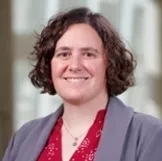 S. Gilk works on the bacterial pathogen Coxiella burnetii and its interactions with the host cell, with a special twist on the role of host cell lipids in the biogenesis of the intracellular replicative niche of this microbe. She has developed interesting and powerful tools to measure the intralumenal pH of endosomes and lysosomes.
S. Gilk works on the bacterial pathogen Coxiella burnetii and its interactions with the host cell, with a special twist on the role of host cell lipids in the biogenesis of the intracellular replicative niche of this microbe. She has developed interesting and powerful tools to measure the intralumenal pH of endosomes and lysosomes.- Prof. Dan V. Nicolau (Université McGill, Montréal). « Something has to give: Computation with motile biological agents« . Mardi 28 Juin 2022, 14h00 (Salle Marcel Dorée)
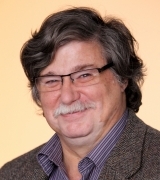 Dan, who is a Professor at, and the Head of the Department of Bioengineering at McGill University, has a PhD in Chemical Engineering, a MS in Cybernetics, Informatics & Statistics and a MEng in Polymer Science & Engineering. He has published ~130 papers in peer-reviewed scientific journals, a similar number of full papers in conference proceedings and 6 book chapters. He has edited one book (with U. Muller; on microarray technology and applications), and edited or co-edited the proceedings of 30+ conferences. Dan is a Fellow of the International Society of Optical Engineering (SPIE) and the Editor-in-Chief of IEEE NanoBioScience. His present research aggregates around three themes: (i) technologies for both largely-parallel, and rapid-sequential high throughput screening; (ii) information storage and processing in biomolecular and/or nano-systems; and (iii) intelligent-like behaviour of microorganisms in confined spaces.
Dan, who is a Professor at, and the Head of the Department of Bioengineering at McGill University, has a PhD in Chemical Engineering, a MS in Cybernetics, Informatics & Statistics and a MEng in Polymer Science & Engineering. He has published ~130 papers in peer-reviewed scientific journals, a similar number of full papers in conference proceedings and 6 book chapters. He has edited one book (with U. Muller; on microarray technology and applications), and edited or co-edited the proceedings of 30+ conferences. Dan is a Fellow of the International Society of Optical Engineering (SPIE) and the Editor-in-Chief of IEEE NanoBioScience. His present research aggregates around three themes: (i) technologies for both largely-parallel, and rapid-sequential high throughput screening; (ii) information storage and processing in biomolecular and/or nano-systems; and (iii) intelligent-like behaviour of microorganisms in confined spaces.
- Dr. Nathalie Sauvonnet (Institut Pasteur – Paris). « Impact of tissue microenvironment and mechanical forces of the gut on pathogens invasion« . Vendredi 8 Juillet 2022
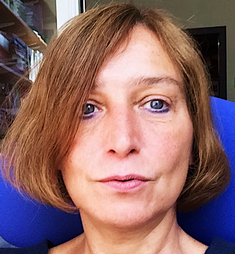
As a cell biologist and microbiologist Nathalie Sauvonnet major interest focused on protein trafficking in different cellular compartments. In bacteria, during her PhD and postdoc she studied secretion mechanisms (Type 1,2,3 secretion system, TnSS) and type IV pili, often involved in pathogenic processes. Using microbiology methods, genetics screens, scanning electron microscopy and biochemistry approaches, she uncovered characteristic features of secreted cargos, revealed the close relation between type IV pili and T2SS and analysed the impact of T3SS on host cell transcriptome. As a permanent researcher, she turned her interest to eukaryotes having multi-compartmentalized cells and studied endocytosis and the dynamics of the endomembrane system. Since 2006, she leads a small team aiming to determine the interplay between intracellular trafficking, tissue mechanics, tissue homeostasis and host-pathogen interactions. On endocytosis, her team used RNAi screen, CrispR-Cas9 gene edition, live TIRF microscopy, robust image analysis and single particle tracking, to characterize the molecular and dynamical aspect of clathrin-independent endocytosis. In parallel, she also studied the consequence of pathogens invasion on the host cell intracellular trafficking. More recently she developed organ-on-chip technology to investigate host-pathogen interactions at the tissue scale using several examples of pathogens (ex: Shigella and SARS-CoV-2) in the aim to decipher the impact of tissue microenvironment and mechanical forces on pathogen invasion.
- Dr. Christel Vérollet (IPBS – Toulouse). « Understanding cell-to-cell transfer of HIV-1 towards macrophages: a perspective for HIV/Tuberculosis co-infection« . Vendredi 25 Mars 2022
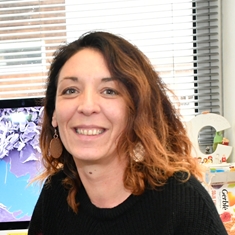 Notre équipe à l’IPBS, Toulouse (dirigée par C. Vérollet et R. Poincloux, https://www.ipbs.fr/phagocyte-architecture-and-dynamics) étudie les mécanismes cellulaires et moléculaires utilisés par les macrophages pour interagir avec leur environnement dans différents contextes physiologiques et pathologiques, y compris la co-infection VIH-1 et VIH/Mtb. En particulier, je suis une biologiste cellulaire qui travaille sur la façon dont le VIH-1 détourne le cytosquelette des macrophages (podosomes et nanotubes à effet tunnel) pour se propager et se disséminer.
Notre équipe à l’IPBS, Toulouse (dirigée par C. Vérollet et R. Poincloux, https://www.ipbs.fr/phagocyte-architecture-and-dynamics) étudie les mécanismes cellulaires et moléculaires utilisés par les macrophages pour interagir avec leur environnement dans différents contextes physiologiques et pathologiques, y compris la co-infection VIH-1 et VIH/Mtb. En particulier, je suis une biologiste cellulaire qui travaille sur la façon dont le VIH-1 détourne le cytosquelette des macrophages (podosomes et nanotubes à effet tunnel) pour se propager et se disséminer.
Dufrancais O, Mascarau R et al. . CMLS, 2021; Mascarau R, et al. . IJMS, 2020; Dupont M, et al. Elife, 2020; Xie M, et al. MBio, 2019; Souriant S, et al. Cell Reports, 2019; Raynaud-Messina B, et al. Proc Natl Acad Sci U S A. 2018; Vérollet C, et al. Blood, 2015
- Dr. Félix Rey (Institut Pasteur, Paris). « Structure and evolution of class II enveloped viruses« .Vendredi 11 Mars 2022 (Visio Zoom disponible)
Felix Rey est  un biologiste structural (doctorat en 1988 à l’Université de Paris-Sud), avec une formation postdoctorale à l’Université de Harvard (1988- 1995), où il s’est spécialisé dans la structure des virus. En 2004 il rejoint l’Institut Pasteur en tant que chef du département de virologie et création en même temps de l’Unité de Virologie Structurale (UMR 3569 CNRS/Pasteur), qu’il dirige toujours aujourd’hui. Ses recherches ont porté sur les structures 3D des polymérases virales et sur la matrice nucléoprotéique de réplication des virus à ARN à brin négatif. Il s’est surtout concentré sur l’étude des protéines d’enveloppe virale, sur la manière dont elles induisent la fusion de membranes avec des implications dans la « vaccinologie inversée » (« reverse vaccinology »), ouvrant la voie à la conception de vaccins axés sur certains épitopes spécifiques pour des virus tels que la dengue et le Zika, et plus récemment aussi sur des bunyavirus. Les travaux de Felix Rey ont notamment conduit à identification d’une classe à part de protéines de fusion membranaire (appelée « classe II ») présente dans des virus tels que les flavivirus (Zika), les alphavirus (Chikungunya), les bunyavirus (virus de la fièvre de la vallée du Rift), les rubivirus (virus de la rubéole).
un biologiste structural (doctorat en 1988 à l’Université de Paris-Sud), avec une formation postdoctorale à l’Université de Harvard (1988- 1995), où il s’est spécialisé dans la structure des virus. En 2004 il rejoint l’Institut Pasteur en tant que chef du département de virologie et création en même temps de l’Unité de Virologie Structurale (UMR 3569 CNRS/Pasteur), qu’il dirige toujours aujourd’hui. Ses recherches ont porté sur les structures 3D des polymérases virales et sur la matrice nucléoprotéique de réplication des virus à ARN à brin négatif. Il s’est surtout concentré sur l’étude des protéines d’enveloppe virale, sur la manière dont elles induisent la fusion de membranes avec des implications dans la « vaccinologie inversée » (« reverse vaccinology »), ouvrant la voie à la conception de vaccins axés sur certains épitopes spécifiques pour des virus tels que la dengue et le Zika, et plus récemment aussi sur des bunyavirus. Les travaux de Felix Rey ont notamment conduit à identification d’une classe à part de protéines de fusion membranaire (appelée « classe II ») présente dans des virus tels que les flavivirus (Zika), les alphavirus (Chikungunya), les bunyavirus (virus de la fièvre de la vallée du Rift), les rubivirus (virus de la rubéole).
- Dr. Roy Matkovic (Institut Cochin, Paris). « A dual repressive effect employed by HUSH to keep HIV silent« . Vendredi 4 Février 2022 (Visio Zoom disponible)
 If on a long time scale the mobile DNA elements and retroviruses constitute positive drivers of the evolution of species, on a short time scale they can disrupt the integrity of our genome by integrating/spreading into it. One of the complexes that allows them to be epigenetically repressed, by deposition of H3K9me3 marks and heterochromatinization, is HUSH. We have previously shown that this complex can inhibit the expression of an HIV-1 minigenome in the J-Lat A1 latency model and that its antagonism by HIV-2 Vpx is able to increase the expression of HIV-1 LTR-derived RNAs. How HUSH is able to repress the HIV provirus remains enigmatic. Together, we will discuss the mechanism used by HUSH to keep HIV silent. We will show that the HUSH member TASOR is actually at the RNA/epigenetic repression interface and that it associates with epigenetic/transcriptional and RNA degradation factors to repress HIV at two steps. Finally, we will build a model of its mechanism that appears to be globally conserved during evolution when it comes to silence exogenous DNA in order to preserve the genome integrity.
If on a long time scale the mobile DNA elements and retroviruses constitute positive drivers of the evolution of species, on a short time scale they can disrupt the integrity of our genome by integrating/spreading into it. One of the complexes that allows them to be epigenetically repressed, by deposition of H3K9me3 marks and heterochromatinization, is HUSH. We have previously shown that this complex can inhibit the expression of an HIV-1 minigenome in the J-Lat A1 latency model and that its antagonism by HIV-2 Vpx is able to increase the expression of HIV-1 LTR-derived RNAs. How HUSH is able to repress the HIV provirus remains enigmatic. Together, we will discuss the mechanism used by HUSH to keep HIV silent. We will show that the HUSH member TASOR is actually at the RNA/epigenetic repression interface and that it associates with epigenetic/transcriptional and RNA degradation factors to repress HIV at two steps. Finally, we will build a model of its mechanism that appears to be globally conserved during evolution when it comes to silence exogenous DNA in order to preserve the genome integrity.
- Dr. Delphine Judith (Institut Cochin, Paris). « ATG5 drives an LC3-associated pathway to counter BST2/Tetherin antiviral functions« . Vendredi 28 Janvier 2022 en visio (lien zoom)
 Delphine performed her PhD at the Pasteur Institute in the laboratory of Pr. Lecuit (Inserm U1117). During her PhD research, she focused her work on the study of the impact of the autophagy machinery on CHIKV replication. Her major achievement was the discovery of the critical species specificity of the virus, which sheds light on the differential behavior of mouse vs. human cells in response to CHIKV.
Delphine performed her PhD at the Pasteur Institute in the laboratory of Pr. Lecuit (Inserm U1117). During her PhD research, she focused her work on the study of the impact of the autophagy machinery on CHIKV replication. Her major achievement was the discovery of the critical species specificity of the virus, which sheds light on the differential behavior of mouse vs. human cells in response to CHIKV.
After her PhD, she moved to London for a post-doctoral position in the laboratory of Dr. Tooze at The Francis Crick institute. The aims of her project were to dissect the intracellular trafficking route through which mammalian ATG9A travels and determine the role of this protein in autophagy by an in-depth analysis of the ATG9A compartment. First, she established an immuno-isolation approach to purify endogenous ATG9A compartments from mammalian cells. Then, she revealed that ATG9A-positive membranes containing activated PI4KIIIb catalyze the production of PI4P at the formation site and thus initiating and driving autophagosome biogenesis and subsequently autophagy. This study opens up a whole new perspective on this process as it has been assumed PI3P is the only lipid required in the autophagy pathway.
After this work she joined, for a postdoctoral work, the laboratory of Dr. Clarisse Berlioz-Torrent in Paris, at the Cochin Institute, where she studied the impact of LC3-associated pathway on HIV-1 infection. The focus of her work is to dissect the LC3-associated process subverted by Vpu to counteract BST2 restriction, and more precisely the initial step occurring at the plasma membrane and required to initiate the process.
- Dr. Coralie Daussy (MFP – Bordeaux). « Viral control by Adenovirus of the cellular membrane damage response« . Vendredi 18 Juin 2021 à 11h en visio (lien Zoom:)
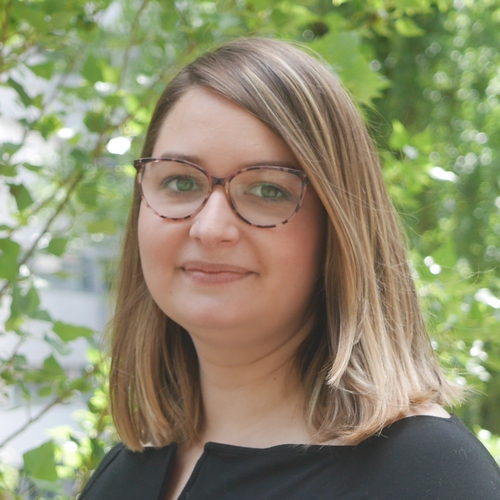
Equipe : « Spatial and temporal control of virus-host interactions » / Laboratoire Microbiologie Fondamentale et Pathogénicité (MFP) – UMR 5234 – Bordeaux
- Dr. Elizabeth Bik. « The Dark Side of Science: Misconduct in Biomedical Research ». Mercredi 8 Septembre à 13h via Zoom. Elisabeth Bik is a Dutch microbiologist living in California, who has worked for 15 years at Stanford University and 2 years in industry. Since 2019, she is a science integrity volunteer and occasional consultant, who scans the biomedical literature for images or other data of concern and has reported over 4,000 scientific papers.

Abstract: Science builds upon science. Even after peer-review and publication, science papers could still contain images or other data of concern. If not addressed post-publication, papers containing incorrect or even falsified data could lead to wasted time and money spent by other researchers trying to reproduce those results. Several high-profile science misconduct cases have been described, but many cases are yet undetected. Elisabeth Bik is an image forensics detective who left her paid job in industry to search for and report biomedical articles that contain errors or data of concern. She has done a systematic scan of 20,000 papers in 40 journals and found that about 4% of these contained inappropriately duplicated images. In her talk she will present her work and show several types of inappropriately duplicated images and other examples of research misconduct. In addition, she will show how to report scientific papers of concern, and how journals and institutions handle such allegations.
Elisabeth Bik’s minibio: E. Bik is a science integrity consultant who specializes in finding image duplications in scientific papers. After receiving her PhD in Microbiology at Utrecht University in The Netherlands, she worked 15 years at the Stanford University School of Medicine on the microbiomes of humans and marine mammals. From 2016-2019, she worked at two microbiome startup companies. In March 2019, she left her job to become a science integrity volunteer and occasional consultant. She can often be found discussing science papers on Twitter at @MicrobiomDigest, writing for her blog ScienceIntegrityDigest or searching the biomedical literature for inappropriately duplicated or manipulated photographic images and plagiarized text. She has reported over 4,000 papers for issues with image duplication or other concerns. Her work has been featured in Nature, Science, Wall Street Journal, New York Times, Washington Post, Le Monde, and The Times (UK). In April 2021 she was awarded the Peter Wildy Prize by the UK Microbiology Society for her contributions in science communication.
Séminaires reportés (pandémie Covid-19)
- Pr Alessia Zamborlini (Paris Saclay University). « SUMOylation of Lysine 595 cooperates with phosphorylation of Threonine 592 to regulate SAMHD1 antiviral activity »
Summary of the talk: SAMHD1 is a cellular triphosphohydrolase that inhibits the replication of HIV-1 in non-cycling immune cells by reducing the concentration of dNTP below a threshold required for efficient reverse transcription of the viral genome. Phosphorylation of residue T592 suppresses the antiviral activity of SAMHD1 in cycling cells. However, phosphomimetic mutants efficiently deplete the cellular dNTP pools, indicating that additional functions and/or post-translational modifications play a role in the regulation of SAMHD1 restriction activity.

A. Zamborlini’s team found that SAMHD1 is SUMOylated on residue K595, a modification that relies on the integrity of a SUMO-interacting motif. Furthermore, their data provide compelling evidence that, in non-cycling cells where most of the protein harbors an unphosphorylated T592 residue, SUMOylation of K595 defines the fraction of restriction competent SAMHD1.
Minibio du Pr. Alessandra Zamborlini : A. Zamborlini a obtenu un diplôme M2 en Chimie et Technologies Pharmaceutiques (Faculté de Pharmacie) puis un PhD en Virologie (Faculté de Médecine) à l’Université de Padoue (Italie). Au cours de sa formation doctorale, elle a étudié le rôle des composants cellulaires de la machinerie ESCRT dans le bourgeonnement du VIH-1 dans le laboratoire de Heinrich Gottlinger (Harvard Medical School, Boston, USA). Elle a ensuite rejoint le laboratoire d’Ali Saïb en tant que post-doctorante où elle a développé plusieurs projets visant à mieux comprendre la persistance du virus dans les cellules T quiescentes et la régulation de l’étape d’intégration par des modifications post-traductionnelles. En 2010 elle a obtenu un poste de Maître de conférences au Cnam (Conservatoire national des arts et métiers, Paris), puis en 2019 un poste de Professeur de Virologie à l’Université Paris Saclay. Ses projets de recherche visent à déchiffrer les bases moléculaires sous-jacentes à la coordination des multiples activités de SAMHD1 ainsi que la contribution de SUMOylation à la réponse antivirale dans les cellules immunitaires au repos ou post-mitotiques.
- Dr Christophe Mueller (Strasbourg university). « Host immune evasion by Pseudomonas aeruginosa? A study of the impact of its lectin LecB on the murine immune system. » POSTPONED DUE TO COVID19 PANDEMIC
Dr. Christopher Mueller is CNRS director of research at the University of Strasbourg, France, and the CNRS research team Immunology and Immunopathology. He has obtained his PhD in Heidelberg / the University of London on c-fos transcription factors and spent two years as a postdoctoral fellow in UC-Berkeley working on transcriptional regulation in the yeast S. cerevisiae. He became an immunologists at Schering-Plough, Inc., France, and integrated the French national research system CNRS to continue his research on the immunobiology of the myeloid cell lineage in the skin and lymphoid tissue. He now heads a research team in Strasbourg to study the impact of the cellular microenvironment on immune cell differentiation and activation in the context of infection and autoimmunity. He has recently shown that mesenchymal cells instruct lymphatic endothelial cells via TNFSF11 (RANKL) – TNFRSF11a (RANK) to create the niche for sinusoidal macrophage differentiation.
He is a member of the Labex Medalis, former director of the International PhD programme of the University of Strasbourg, and co-founder of the Upper Rhine Immunology group, comprising the Universities of Strasbourg, Freiburg and Basel.
- Dr. Sarah Gallois-Montbrun (Institut Cochin, Paris) « Non-canonical Roles of Argonaute proteins in HIV-1 viral RNA expression« – initialement planifié le 13 Décembre 2019 mais reporté à une date ultérieure
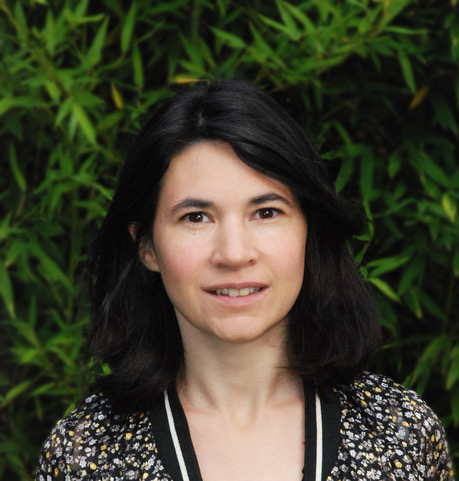 Summary of the talk: During its replication, HIV-1 produces more than 50 different transcripts coding for all the proteins necessary for viral particles assembly. Balanced production of viral isoforms is highly regulated both temporally and spatially. Current research in my group aims at characterizing the role of viral and cellular factors involved in HIV-1 RNA production. In particular, we investigated the role of the miRNA pathway and demonstrated that key proteins of these pathway, Argonaute 1 and Argonaute 2, participate at different levels of viral RNA production independently of the presence of miRNA. In parallel, we recently developed a long-read sequencing assay to quantify production of HIV-1 isoforms and to decipher the cascade of splicing events taking place at early time points after infection.
Summary of the talk: During its replication, HIV-1 produces more than 50 different transcripts coding for all the proteins necessary for viral particles assembly. Balanced production of viral isoforms is highly regulated both temporally and spatially. Current research in my group aims at characterizing the role of viral and cellular factors involved in HIV-1 RNA production. In particular, we investigated the role of the miRNA pathway and demonstrated that key proteins of these pathway, Argonaute 1 and Argonaute 2, participate at different levels of viral RNA production independently of the presence of miRNA. In parallel, we recently developed a long-read sequencing assay to quantify production of HIV-1 isoforms and to decipher the cascade of splicing events taking place at early time points after infection.
Dr Gallois-Montbrun’s minibiography: After completing her PhD studies at Pasteur Institute Paris in 2004 on cellular metabolism of anti-HIV-1 drugs, she undertook post-doctoral training with Prof Michael Malim at King’s College London. There she focused on characterizing cellular protein and RNA partners of APOBEC3G and APOBEC3F, two HIV-1 restriction factors. She was recruited as Inserm research scientist at Cochin Institute in 2009. Since then, her group has aimed at dissecting mechanisms regulating HIV-1 RNA fate and how these impact on viral replication.
- Prof. Jack Stapleton (Iowa university, USA) « A flavivirus genome-derived noncoding RNA regulates T cell function and restricts virus replication » Friday the 21st of February 11 am
Jack Stapleton’s minibio: Jack is a Professor of Internal Medicine, Infectious Diseases and Microbiology at the University of Iowa. Over the last 3 decades, his laboratory has focused on positive strand RNA viruses (HIV, HCV, GBV-C/HPgv) and how members of the Flaviviridae interact with HIV and immune function. Most recently, the lab studies how HCV and yellow fever virus genomic RNA is processed into short, noncoding RNAs that regulate T cell function and enhance viral replication. He also has conducted numerous translational studies on how human pegivirus (GBV-C) prolongs survival in HIV infected people, and characterized mechanisms involved in this beneficial co-infection.
- Dr. Philippe Benaroch « Host-HIV interplay in human primary myeloid cells » – 22 Novembre 2019
 Philippe Benaroch is research director at the CNRS and heads the team “Myeloid cells and immunity” within the Department of Immunology at the Institut Curie in Paris. He will present recent work and unpublished data regarding a recently identified blood dendritic cell subset, its unique relationship with HIV and some of its shared properties with infected macrophages.
Philippe Benaroch is research director at the CNRS and heads the team “Myeloid cells and immunity” within the Department of Immunology at the Institut Curie in Paris. He will present recent work and unpublished data regarding a recently identified blood dendritic cell subset, its unique relationship with HIV and some of its shared properties with infected macrophages.
Philippe Benaroch is particularly interested by myeloid cells that represent a very ancient form of cellular immunity against pathogens and tumor cells. Myeloid cells are very plastic, endowed with an ever-growing list of functions in innate and adaptive immunity. How myeloid cells crosstalk with HIV and tumor cells and how this interplay is regulated remains to be established at the molecular level and represent the focus of his lab.
- Dr. Lise Chauveau (Oxford university, UK) « The immune system’s Trojan horse: Using cGAMP-loaded VLPs for vaccination » – 11 Octobre 2019
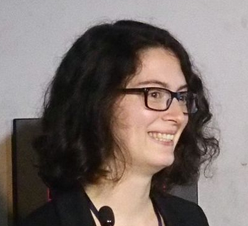
Dr Lise Chauveau is interested in how viruses induce an immune response, the type of response induced and how viruses may counteract it. She studied Biology at the Ecole Normal Superieure de Lyon where she obtained a Master degree in 2012. She then moved to the Pasteur Institute in Paris to complete a PhD in the laboratory of Prof Olivier Schwartz in 2016. There, she studied factors influencing the ability of HIV-1 and HIV-2 to infect cells of the immune system, CD4 T cells and dendritic cells. This is where her interest in antiviral immunity and how viruses might modulate it sparked. She is now a postdoctoral researcher with Dr Jan Rehwinkel at the Weatherall Institute of Molecular Medicine, University of Oxford, UK. She currently works on an original vaccination strategy using HIV-derived virus-like particles that incorporate an innate immune messenger (cGAMP) to induce potent and protective immune response against viruses.
- Prof. Ricardo Soto-Rifo (Universidad de Chile) « The complex life of HIV-1 full-length RNA » – Mardi 1er octobre 2019
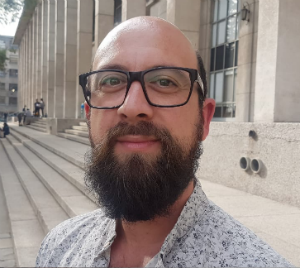 Dr. Soto-Rifo has been always interested in the molecular and cellular mechanisms controlling gene expression in Eukaryotes with a special emphasis in RNA viruses as study models. Dr. Soto-Rifo studied biochemistry at Universidad de Santiago de Chile and then moved to France where he obtained a Master in Sciences degree from Université Claude Bernard Lyon-1 in 2006 and then a Ph.D in Life Sciences from Ecole Normale Supérieure de Lyon in 2010. He worked at the Human Virology Department (currently the International Center for Infectiology Research, CIRI) under the supervision of Dr. Théophile Ohlmann on the translational control of the HIV-1 and HIV-2 genomic RNA. During his post-doctoral training at Dr. Ohlmann’s lab, Dr. Soto-Rifo worked on the remodeling and localization of the messenger ribonucleoprotein complexes (mRNPs) containing the HIV-1 genomic RNA by analyzing the role of the DEAD-box RNA helicase DDX3 in these processes. In 2013, he moved to Biomedical Sciences Institute at Universidad de Chile Faculty of Medicine to start his own laboratory at the Virology Program. Since then, Dr. Soto-Rifo’s reasearch has been mainly focused in understanding the mechanisms involved in RNA metabolism during HIV-1, HIV-2, respiratory syncytial virus and Zika virus replication.
Dr. Soto-Rifo has been always interested in the molecular and cellular mechanisms controlling gene expression in Eukaryotes with a special emphasis in RNA viruses as study models. Dr. Soto-Rifo studied biochemistry at Universidad de Santiago de Chile and then moved to France where he obtained a Master in Sciences degree from Université Claude Bernard Lyon-1 in 2006 and then a Ph.D in Life Sciences from Ecole Normale Supérieure de Lyon in 2010. He worked at the Human Virology Department (currently the International Center for Infectiology Research, CIRI) under the supervision of Dr. Théophile Ohlmann on the translational control of the HIV-1 and HIV-2 genomic RNA. During his post-doctoral training at Dr. Ohlmann’s lab, Dr. Soto-Rifo worked on the remodeling and localization of the messenger ribonucleoprotein complexes (mRNPs) containing the HIV-1 genomic RNA by analyzing the role of the DEAD-box RNA helicase DDX3 in these processes. In 2013, he moved to Biomedical Sciences Institute at Universidad de Chile Faculty of Medicine to start his own laboratory at the Virology Program. Since then, Dr. Soto-Rifo’s reasearch has been mainly focused in understanding the mechanisms involved in RNA metabolism during HIV-1, HIV-2, respiratory syncytial virus and Zika virus replication.
The presentation will be focused on the role of the RNA modification N6-methyladenosine (m6A) and its associated cellular machinery in defining the cytoplasmic destiny of the HIV-1 genomic RNA during the late steps of the viral replication cycle.
- Dr. Pierre-Olivier Vidalain (CIRI)« Searching for chemical activators of the interferon response : surprises from a chemobiological approach » – 13 Septembre 2019
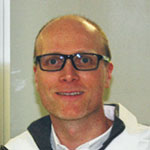
Pierre-Olivier Vidalain, Directeur de Recherche, CNRS. Après avoir soutenu une thèse en immunologie à l’Ecole Normale Supérieure de Lyon, Pierre-Olivier s’est familiarisé avec les techniques de criblage à haut débit et l’étude des interactions protéine-protéine dans l’équipe de Marc Vidal (Harvard Medical School, Boston). Recruté en 2005 au CNRS, il a travaillé successivement à l’Institut Pasteur puis à l’Université Paris Descartes où il a étudié les interactions entre protéines virales et cellulaires et à mis au point différents systèmes pour l’identification de molécules antivirales ciblant l’hôte. Il s’intéresse plus particulièrement aux effets immunomodulateurs de composés inhibant la voie de biosynthèse des pyrimidines. En janvier 2019, il a rejoint le Centre International de Recherche en Infectiologie à Lyon pour poursuivre ses travaux à l’interface entre immunité innée, métabolisme et approches chémobiologiques.
- Dr. Jost Enninga (Institut Pasteur, Paris) « Subversion of infection associated macropinosomes drives the intracellular niche formation of bacterial pathogens » – 5 Juillet 2019
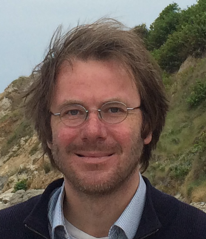
Jost Enninga heads the research unit « Dynamics of host-pathogen interactions » within the Department of Cell Biology and Infection at the Institut Pasteur in Paris. He performed his Ph.D. studies in the Laboratory of Cell Biology at the Rockefeller University, New York, under the supervision of Dr. Guenter Blobel. There, he focused on how viruses subvert host cellular trafficking processes. Afterwards, Jost moved to the Institut Pasteur in Paris in 2004 to study the early events of bacterial host cellular invasion with Dr. Philippe Sansonetti and Dr. Guy Tran Van Nhieu. Between 2008 and 2012, Jost built up his own junior team at the Institut Pasteur, and he heads his current research unit since 2013. His team investigates the intracellular niche formation of different bacterial pathogens, including Shigella and Salmonella. Main questions are membrane trafficking subversion by the pathogens, and how specific intracellular localizations trigger distinct immune responses. His research unit develops imaging-based technologies that allow the analysis of host-pathogen interaction dynamics with unprecedented spatiotemporal resolution.
- Dr. F. Perez (Institut Curie, Paris) « Exploring the Secretory Pathway : from Basic to Translational Research » – 28 Juin 2019
- Dr. Sylvie Lecollinet (Virology department at ANSES/Veterinary school, Maisons-Alfort) “From basic to applied research on zoonotic West Nile and Usutu flaviviruses” – 14 Juin 2019
- Dr. Niedergang Florence (Institut Cochin – Paris) « Macrophages upon viral infection, emergence of opportunistic diseases » – 9 Mai 2019
- Dr. Mauffret Olivier (LBPA – ENS Cachan) « Structures-functions relationships of the zinc fingers domains of HIV-1 nuclecocapsid protein » – 15 Février 2019
- Dr. Manel Nicolas (Institut Curie) – « Activation of innate immune sensors by viruses and self » –1er Février 2019
- Dr. Carocci Margot (INSERM UMR-949, Université de Strasbourg)« Development of novel strategies to fight flaviviruses: from targeted screen to in vivo antiviral validation » – 7 Décembre 2018
- Dr. Cimarelli Andrea (Inserm U1111 – CNRS UMR 5308 – Université / ENS de Lyon) « Interferon-stimulated transmembrane proteins (ifitms) as a novel paradigm of restriction factors targeting the in and out of a viral life cycle » – 14 Novembre 2018
- Dr. Margottin-Goguet Florence (Institut Cochin – Paris) « HIV Latency as an intrinsic host defense antagonized by lentiviral proteins » – 21 Septembre 2018
- Dr. Oehlers Stefan (Centenary Institute – University of Sidney) « Vascular control of mycobacterial immunity » – 6 Juillet 2018
- Dr. Shu Sin Chng (Department of Chemistry, National University of Singapore) « Bacterial lipid trafficking and outer membrane homeostasis »
- Prof. Slupphaug Geir (Department of Clinical and Molecular Medicine, Trondheim, Norway) « Are endogenous and chemically induced base methylations in human mRNA processed differentially? »
- Dr. Chojnacki Jakub (IrsiCaixa AIDS research institut – Barcelona) « STED microscopy studies of HIV-1 dynamic structure and virus-cell interactions. »
- Dr. Gaudin Raphaël (Inserm U1110 – Strasbourg) « Zika virus induces monocyte transmigration, spreading the infection to the brain »
- Dr. Muriaux D. (CEMIPAI) « Présentation de la plateforme CEMIPAI et ses technologies innovantes »
- Prof. Yegutgin G. (University of Turku – Finland) « Emerging roles of purine-converting ectoenzymes in inflammation and tumorigenesis »
- Dr. Smyth R. (IBMC, Strasbourg)
- Dr. Lyonnais S. (IBMB-CSIC, Barcelone)
- Dr. Long J. (Imperial College of London)
- Dr. Meunier E. (IPBS, Toulouse)
- Dr. Herbeuval J.P. (UMR 8601, Paris)
- Dr. Wodrich G. (UMR 5234, Bordeaux)
- Dr. Henriet S. (University of Bergen, Norway)
- Dr. Janvier K. (Institut Cochin, Paris)
